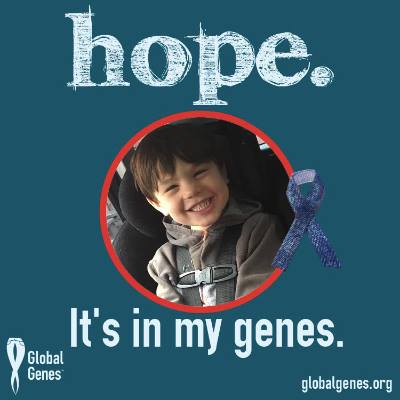Avery
Avery Madeline Creese is six. She doesn’t know it. I want to write about her. She will never read it.
People who have been in my life know the myriad of challenges since Avery was born on April Fools Day, 2011. Nothing prepares you for the laborious, emotional roller coaster that was the process that became the effort of finding out her diagnosis. Pain and uncertainty with each negative test.
In a packet I think we got from the hospital when she was born, there was a magnet with the heading “Is your baby’s hearing on track?”
It separated the milestones by stages of their infancy – birth to 3 months, 3-6 months, 6-9 months and 9-12 months. In each section was listed what could be expected. Jumps or blinks at loud sounds. Quiets or smiles when spoken to. Responds to your voice even when you can’t be seen. Starts babbling. You get the idea.
The magnet sat on the left side of our refrigerator and with each of Avery’s milestones, I took a pen and made an impression into the magnet of a circle going around the bullet point in front of that milestone.
Avery seemed to sleep a great deal in the first month of her life. After that, the milestones started coming. Some were clearly happening. Others we would see sporadically. But I started to notice some delays. Birth-to-3 month milestones were not being met in the first three months. We thought she’s a late bloomer.
Between three and six months, I started to feel like there was no question something was wrong. Her mother had a hard time accepting what we were seeing. It was difficult. We weren’t sure what was going on.
By the time Avery turned seven or eight months, the milestones listed just stopped happening. The process began to try and discover what was going on.
The first thing I remember is a doctor suggesting she had cerebral palsy. That started the process of neurosurgeons. They referred us to neurosurgical instead of just straight neurology, so without knowing it, we were in the wrong place. Despite that, we went through the process and they were able to provide us for our first diagnoses –microcephaly (a small head) and hypotonia (low muscle tone). These were secondary diagnosis, not the source of her developmental delay. More importantly, Avery ended up getting an MRI from them and her brain activity looked fine. Cross off cerebral palsy.
We started seeing various specialists and ended up at an office that deals with all kinds of typical children’s issues. My son’s ADHD was diagnosed there. (Notably, at this time, Avery is over two years old). We met with a specialist, but she was not a doctor. I remember going through a little trial and error but at one point, she wrote down three things she thought it might be – “autism, severe intellectual disability, genetic disorder.”
She wrote the order for genetics blood tests. (Yes, tests plural. There should only have been one. Either a karyotype or microarray should have been ordered but they ordered both to our financial detriment).
So she had her tests done and we went home and rued about what it could be. I did my research and her mother did hers. We looked up different genetic disorders with the hope that if we found enough similar characteristics, maybe we could find out before the test came back. It was mentally exhausting. I went at it at home in my free time, but couldn’t find anything.
Got a call at work from Lindsay (Avery’s mom) that she thought she had found something. Told me to look up Phelan-McDermid Syndrome. I Googled it. It seemed like a match. And then I continued reading.
“Although the range and severity of symptoms may vary, Phelan-McDermid syndrome’s most common symptoms include low muscle tone (hypotonia), intellectual disability, delayed or absent speech, abnormal growth, seizures, tendency to overheat, large hands, and abnormal toenails. Affected individuals may have characteristic behaviors, such as mouthing or chewing on non-food items, decreased perception of pain, and autistic-like behaviors.”
I picked up the phone and called the doctor’s office. I asked for the person who was working with us and if results were in, maybe she would be able to tell me.
Me: “Do you guys have the test results back yet?”
Her: “Yes”
Me: “We have done some research and think we might have found it.
Her: “Really?” (Note: there are over 6,000 recognized genetic disorders)
Me: “If I ask you what it is and we are right, can we skip the upcoming appointment?”
Her: “Sure, what do you think it is?”
Me: “Phelan-McDermid Syndrome
Her, almost excitedly: “That’s it!”
Me: <head down>
I thanked her and hung up the phone. I went to our room, alone, buried my head in a pillow and bawled. I was also angry. Not about the diagnosis, but that we had hope after hope altered with each successive doctor’s appointment. With each test. All when a blood test could have been administered in utero.
For the next six months, crying out of the blue became a regular part of my life.
Avery Madeline Creese is the most difficult thing that has ever happened to me and I do not expect this to change before either she or I pass away. Simultaneously, she has done more to change me for the better than any human being who has come into my life.
I love my son Austin and other daughter Carter more than I knew I could love anything or anyone. I can tell them and they can reciprocate. I want to throw this out because sometimes, unfortunately, they are the forgotten children because they do not need constant supervision. In case they ever read this, I want to say it publicly that I am as proud as I can be of both of them. They are also great with their sister.
With Avery, sharing our love is less tangible. Words are replaced by eye contact. Smiles. Laughs. Hugs. Arm scratches. Our love is expressed physically. There are few things better than unsolicited love from your daughter who can not speak.
Now, if there ever comes a cure, I already have lined up what I want her to read someday:
Avery, I can not tell you how many days and nights I wished I could talk to you. I wanted tell you that you are safe with me, that there is no reason to have anxiety. No reason for fear. I wanted tell you that I will always take care of you. I’d tell you how much I love your laugh. I might have asked if we could watch a different TV channel. I want you to know that on this planet, I didn’t believe in angels, but you changed that
You are the most innocent, free, completely honest thing I have ever spent time with. I love you, your brother and sister more than anything.
You are my ‘forever baby.’ No matter your size, you will be my baby. I love your beautiful curls, the small steps of progress you make and the patience you show as we try to figure this out. Your small steps have felt as good as my life’s grandest. I will never quit for you. I may end up alone. It may be us alone. But I don’t sorry for myself.
Thank you for turning me into a better person whether I was ready or not.
Below is the end of an e.e. cummings poem I have always loved. The end was always the most confusing and my least favorite part. I always thought the poem was romantic. Now, I think its about innocence. I think its about Avery.
nothing which we are to perceive in this world equals
the power of your intense fragility: whose texture
compels me with the colour of its countries,
rendering death and forever with each breathing
i do not know what it is about you that closes
and opens;only something in me understands
the voice of your eyes is deeper than all roses
nobody,not even the rain,has such small hands
Happy Birthday to my forever baby.
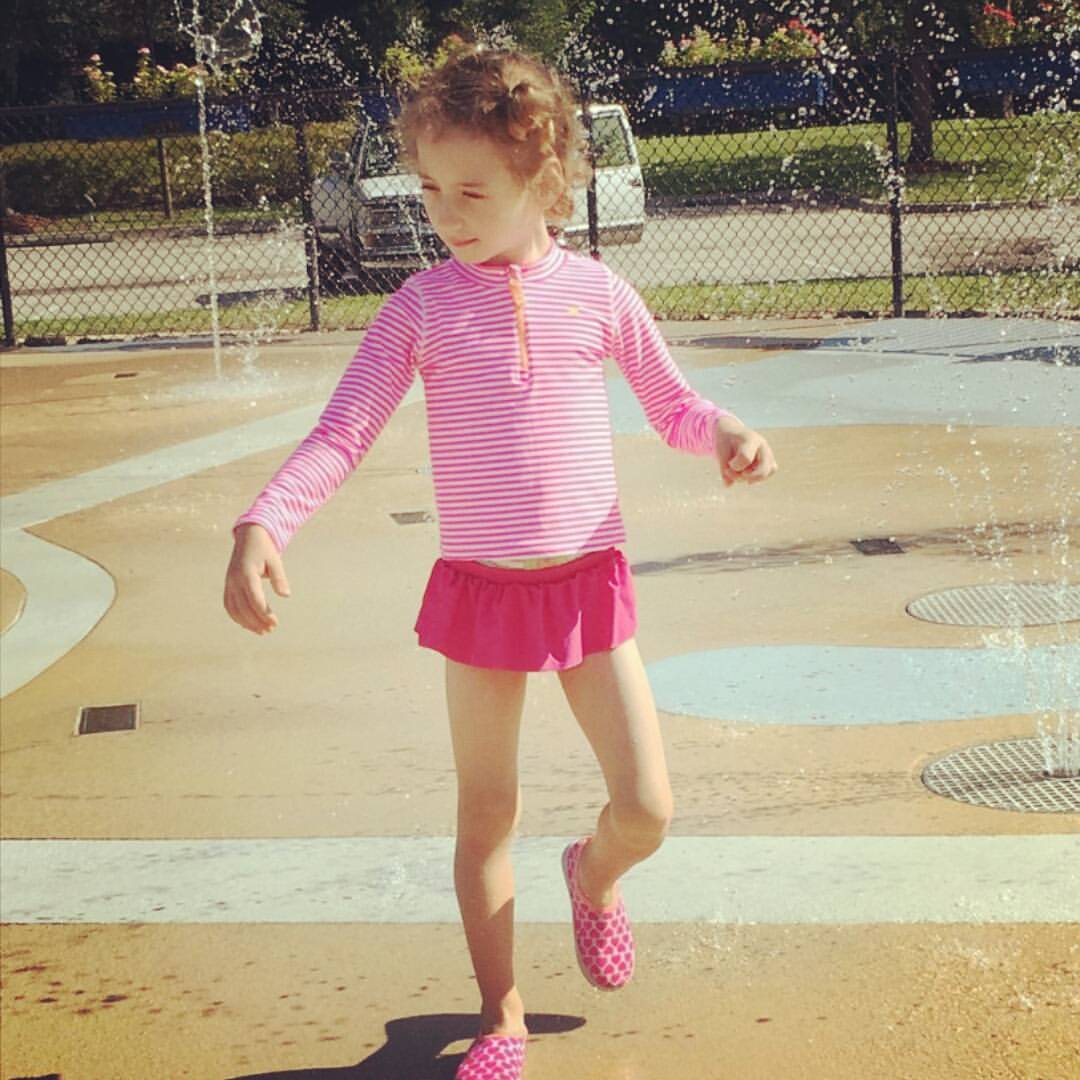
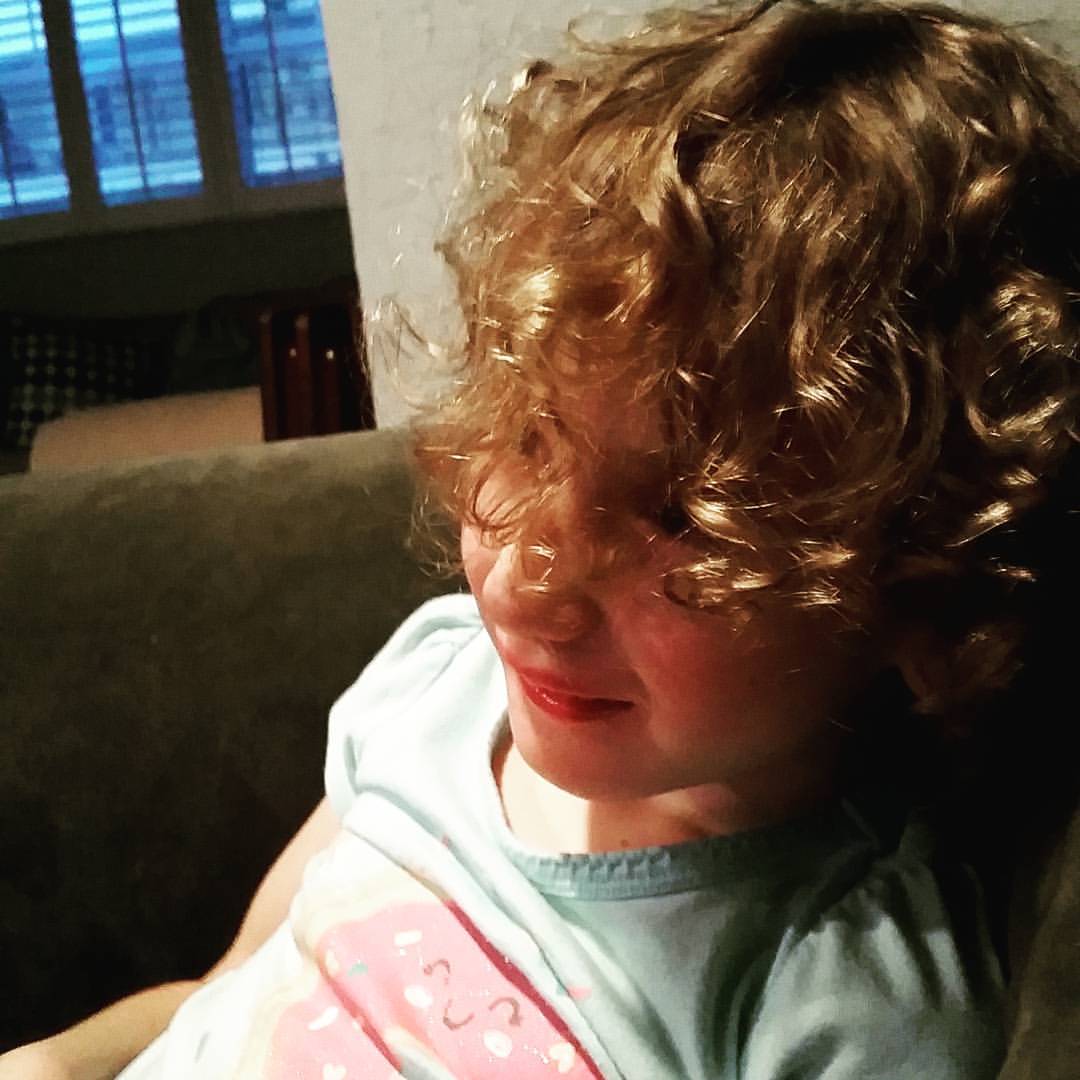
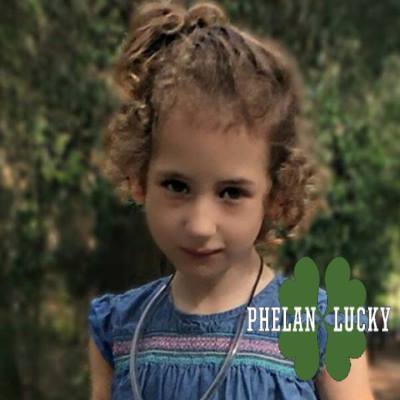
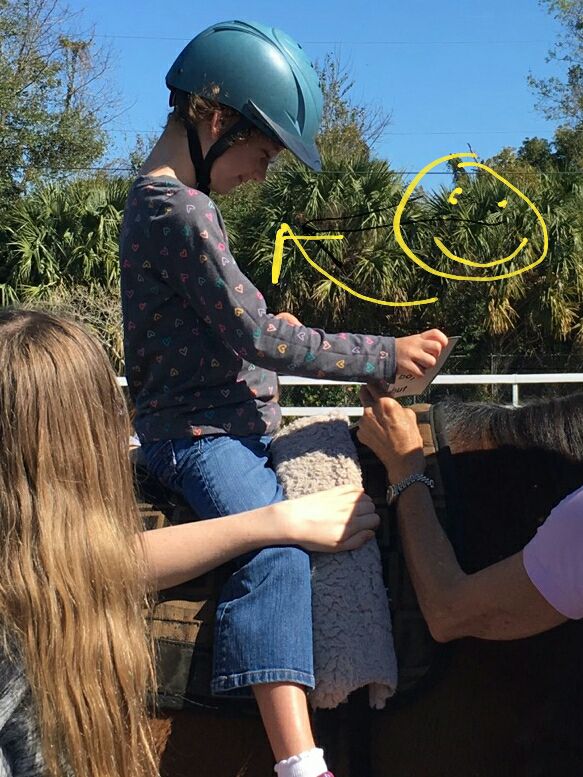
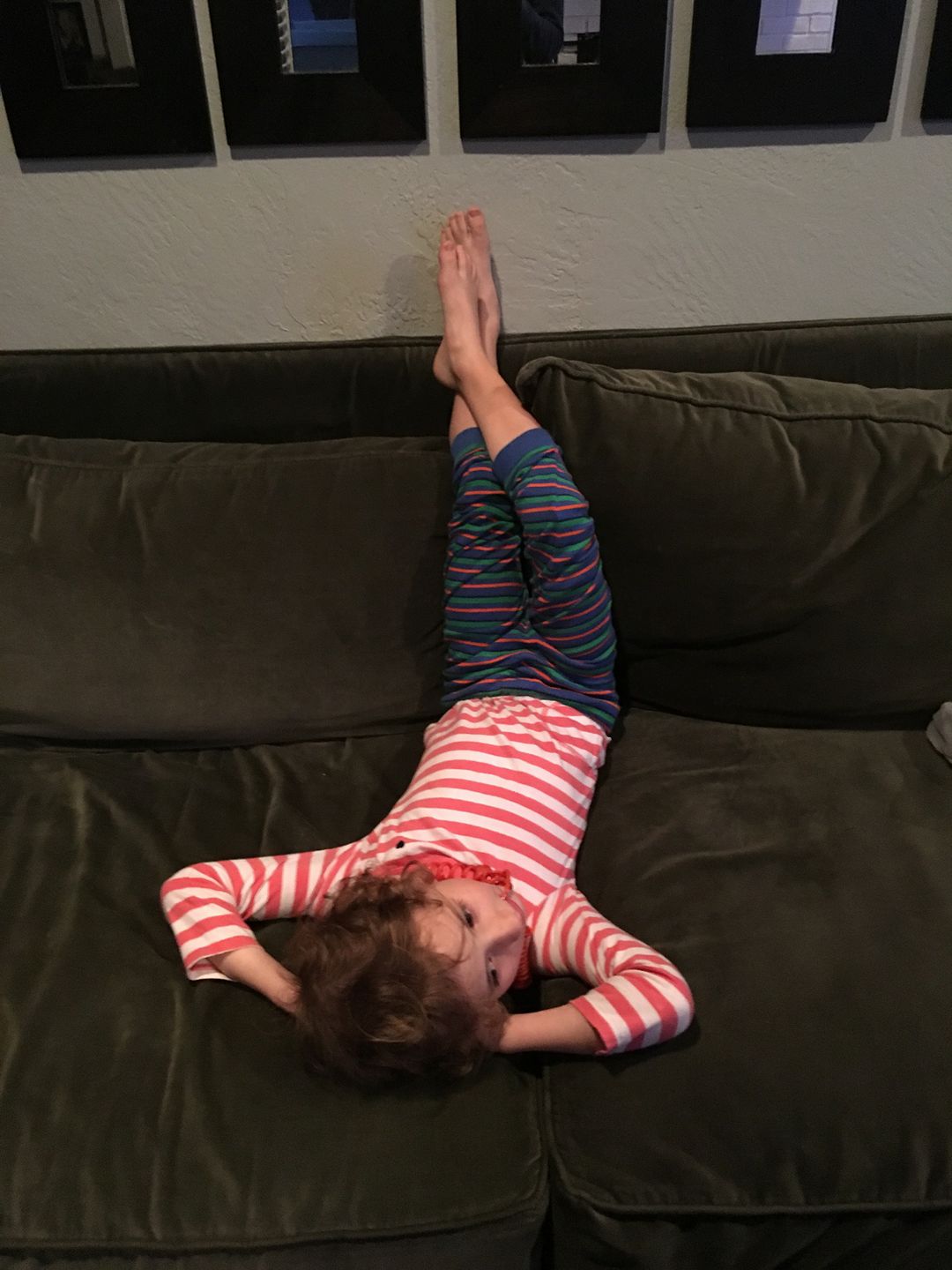
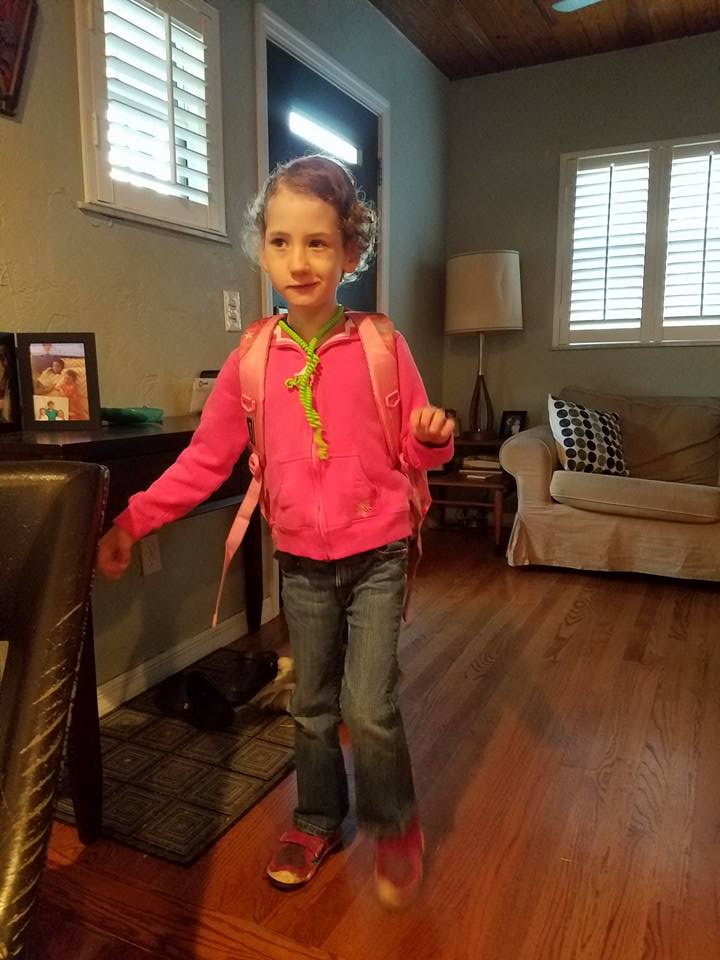
Max
Today is June 8, 2016. On this day 6 years ago I was working hard to bring Max into this world. Little did I know I was going to live and experience a whole new world through my baby. The first few years were so beautiful and frustrating at the same time. You always wonder “if my baby will” “when my baby will” and then it soon turns to “when my toddler will” and “if my toddler will” to “one day my child will” or “will my child ever do that?”. I know I’m not the only one who wants to crawl inside my child’s head and walk around to see if I can get any type of thought process from him but then I start to wonder “what if someone looked inside my head and saw all of my crazy emotions?!?” all the emotions, the highs and lows, the milestones, the tiredness, the fear, the anxiety, oh how the list could go on and on. If someone saw all that went on in my head they would think I was crazy! Thank goodness that my family who lives almost 400 miles away is such a huge support to us! With their love and good wishes, we make it through each day.
When Max was born I was fortunate to be able to depend on my friend to watch him while I worked. I was lucky to be able to leave my home each day knowing that my child was being taken care of and also getting love. As much as I wanted to be with my child every day I had to walk out the door and work being I was/am the sole provider for my three children. When Max turned 5 it was time to start kindergarten, this also meant that I was going to lose my caregiver for Max because of the less hours she would get. My job was also unable to work with my schedule. After 8 years I had to resign from a job I loved. I had not a clue what I was going to do, when I would be getting a paycheck, or what type of job I was looking for. I just knew I had to do what was best for my family and so I took a huge leap of faith. While I waited for faith to start working, I would join Max for lunch every day at his school to feed him. I looked forward to it every day, in between sending out resumes and job applications, it was always my time to look at my son and chat with him. It was also my time at home. I learned to enjoy it. It was the first time in 5 years I was alone! No kids around. No music playing. No voices chatting. Just silence. I was starting to love it. But wouldn’t you know, faith decided to work a couple weeks later. A job opened up at Max’s school for a Para position. I was encouraged by the staff to apply. I did. I got hired. I also got assigned to Max’s class with another student.
I absolutely love it! I love my job. Every day I get to watch my son be social, yes he may be non-verbal, but he made friends. I watch my son get stronger mentally and physically. I watch him reach his IEP goals and then some. I have watched him start at walking up to 50 feet and then 200 feet and more! I am able to witness the smiles on teachers, students, and staff members faces when Max acknowledges them or gives them a high five. I am able to hear stories about my son through my co-workers. Tonight I was able to watch my son at his kindergarten concert and sing along with him because I was able to be there while they practiced so hard for this night. After the concert the crowd formed a tunnel for all the kindergartners to go through as they make their way to 1st grade. I was able to push my son’s wheelchair through and hear the cheers and the words of encouragement that were being said to my Max.
Like I said six years ago, I never would have imagined a world like the one my family lives today. I just know I am going to work alongside my son as long as I can. This was only kindergarten; I can’t wait to see what 1st grade will be like!!
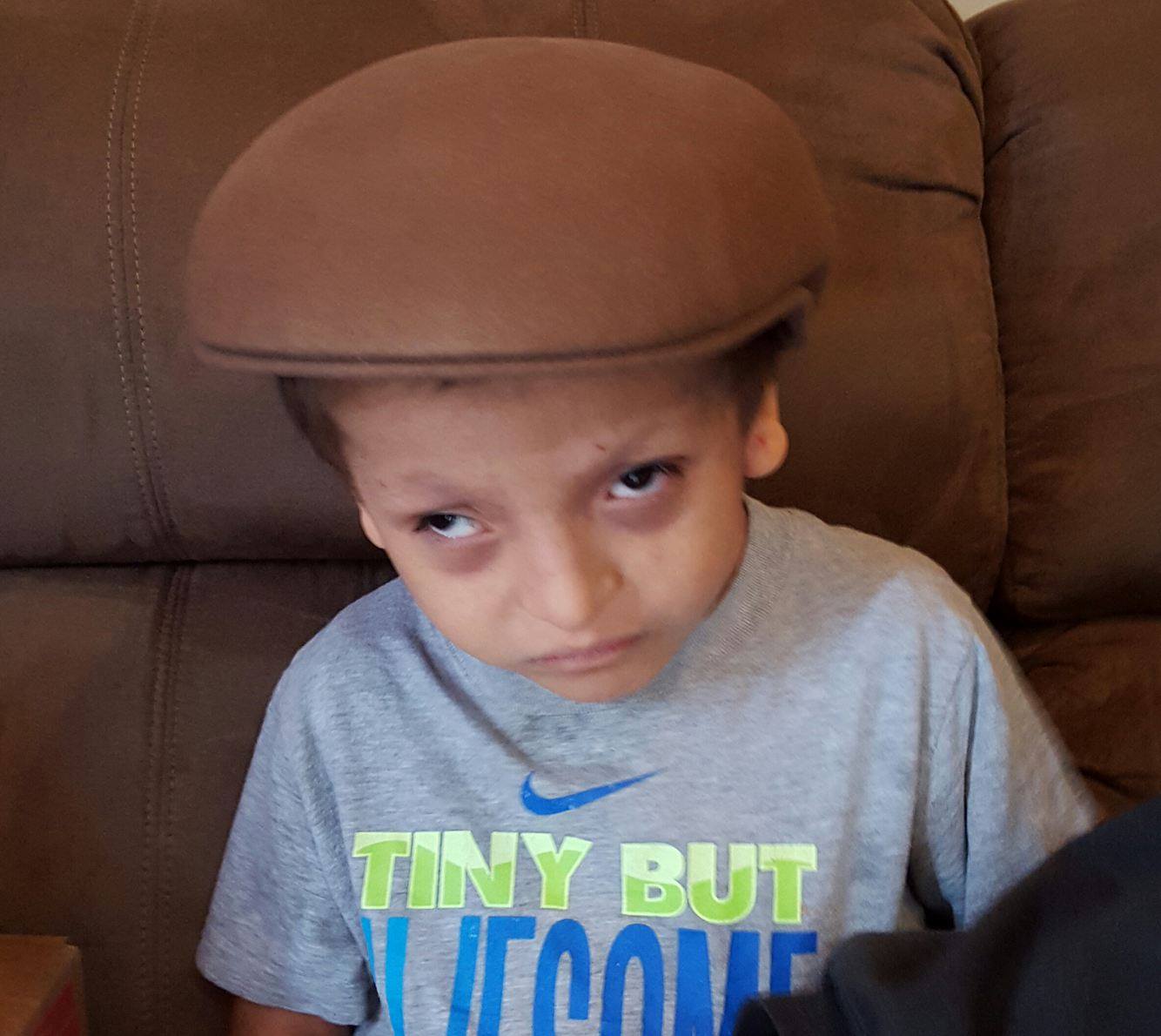

Zoe
Below post written so eloquently by Zoe's mom - especially meant for those that are new to the diagnosis.
Today marks exactly 3 years since our daughter's Phelan McDermid diagnosis.
3 years that have completely and utterly changed us. Changed our lives, our ways, our priorities, our way of thinking, our everyday living, our expectations, our aspirations. Changed us, as people. For the better.
Yes today, we are better people in all aspects.
When this unforeseen diagnosis came upon us, all we could feel was numbness, fear and sadness.
I spent days crying on my own, feeling helpless. And hopeless. Νot knowing how I was going to navigate through all of this new information, let alone function with this new data. How was I supposed to do this? What did it all mean? Why did this happen to us? How were we supposed to know how to deal with a medical case that no doctor was able to help us with? They were even more clueless than us. You go searching for answers, and all you get is faces of awe, as you tell them things they have never heard before. The same people that you have gone to be advised by and you pay. Cost? Lets not talk about cost. Emotional or monetary. Red tape? Don't even get me started.
Our daughter needs help and supervision for almost everything all the time. She needs someone to teach her the simplest task and keep teaching her that same thing over and over over, and just as you feel, "well she got the hang of it", she stops doing that same task you have worked on for days, weeks, months, and it might be lost, part of it or all of it, and it may come back, but it may well not. She is completely non verbal, but every now and then she speaks a word and you get all excited and that word never happens again. She goes through sleeping spells and we get some rest and then for months on end she wakes up in the middle of the night for no apparent reason and goes back to sleep after 15-18 hours straight. Some people think we are exaggerating. We are not. I could go on and on. Her being, is an utter surprise to us all.
Living in despair you think. Well let me tell you. This new life, this unexpected raising-a-child-with-disability-life-that-never-occurred-to-us life, this life is full. Full of enjoyment, laughs, little daily achievements, new experiences and wonderful people. We take nothing for granted. On this path we have come across some amazing people, each facing their own battles. People that have helped us realise how strong we can be. And people that have inspired us with their actions and strength and stamina. And also people with compassion and true spirit of love that have helped us cope with everyday tasks and have taught us that thinking outside the box is a necessity.
Forget anything you knew. This is not a textbook case. None should be really…
Why do we all have to fit in a box anyway and live with milestones and musts.
To all of you out there, I want to say. These past three years may have been extra hard. But fear not, we are not unhappy, we are not miserable. We are living life in our way, in Zoe’s, Rodoula’s and Petro’s way. Our daughter may not be the typical 6 year old little girl you would expect, bombarding you with questions and putting on mummy’s heals (I never wear those anyway- can’t walk in them) or playing with dolls and girlfriends or whatever 6 year olds do anyway. But she is the most amazing little girl I could ask for! She is full of laugh and mischievousness, joy and true pure love.
We are doing this in our own little way and we are enjoying ourselves along the way. Yes, there are days that are harder than others. And yes there are days that are full with what ifs and what will… And yes we are not getting enough sleep no matter how hard we try. But we are good. We are not overjoyed with this syndrome invading our lives and taking on. But we have come to accept the fact that our lives will be different and it is up to us to find happiness in the little or bigger things.
So new families out there, faced with this or any other diagnosis for that matter, know this. You can do this. You got this. It is not easy, but it is definitely worth it. Every. Minute. Of. It.
Three years marked. Never thought on the day of the diagnosis that I - we, would be able to cope with any of this. But we are. In our own little way.
Stay strong. Love you all.
Ro
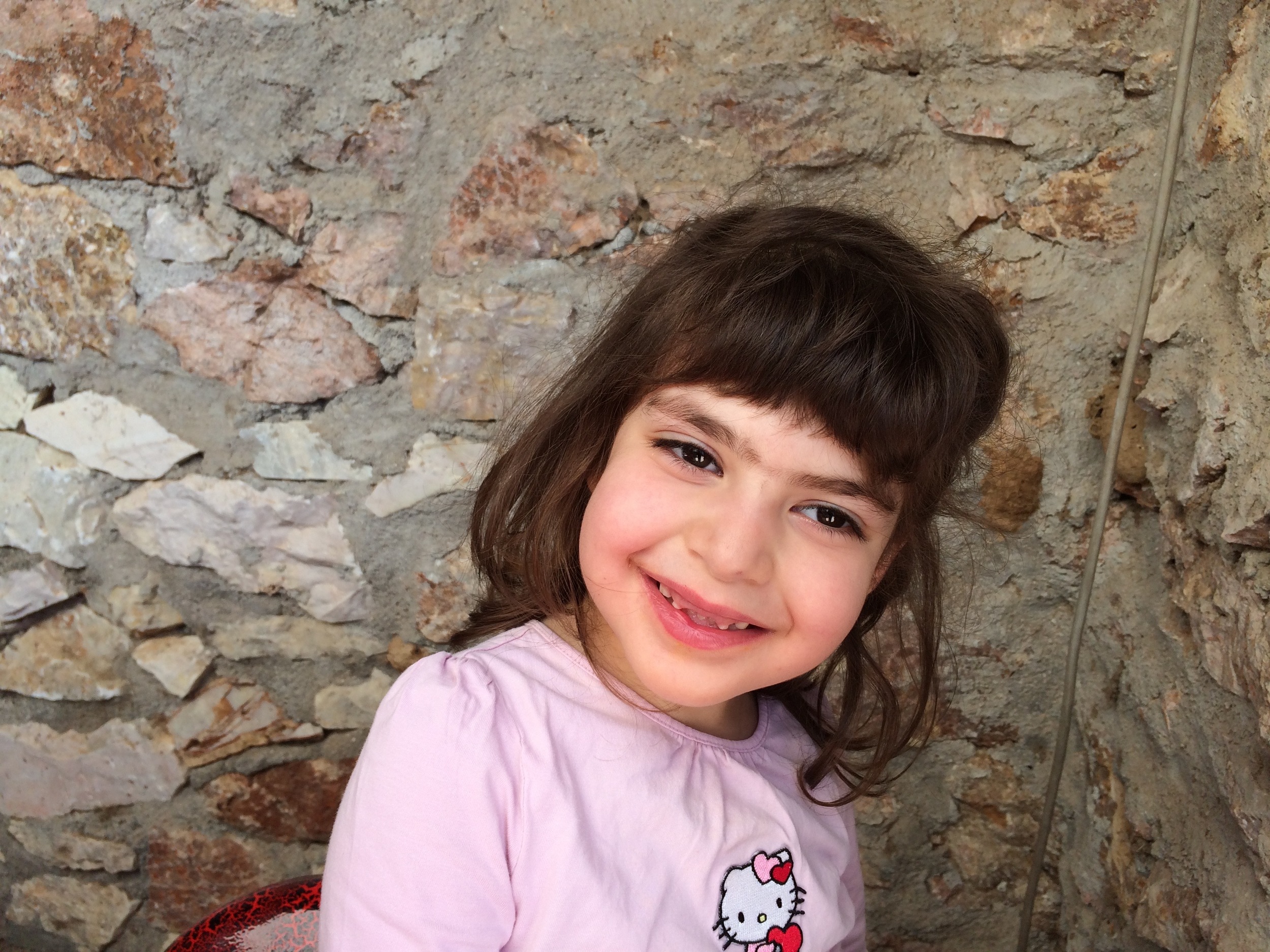
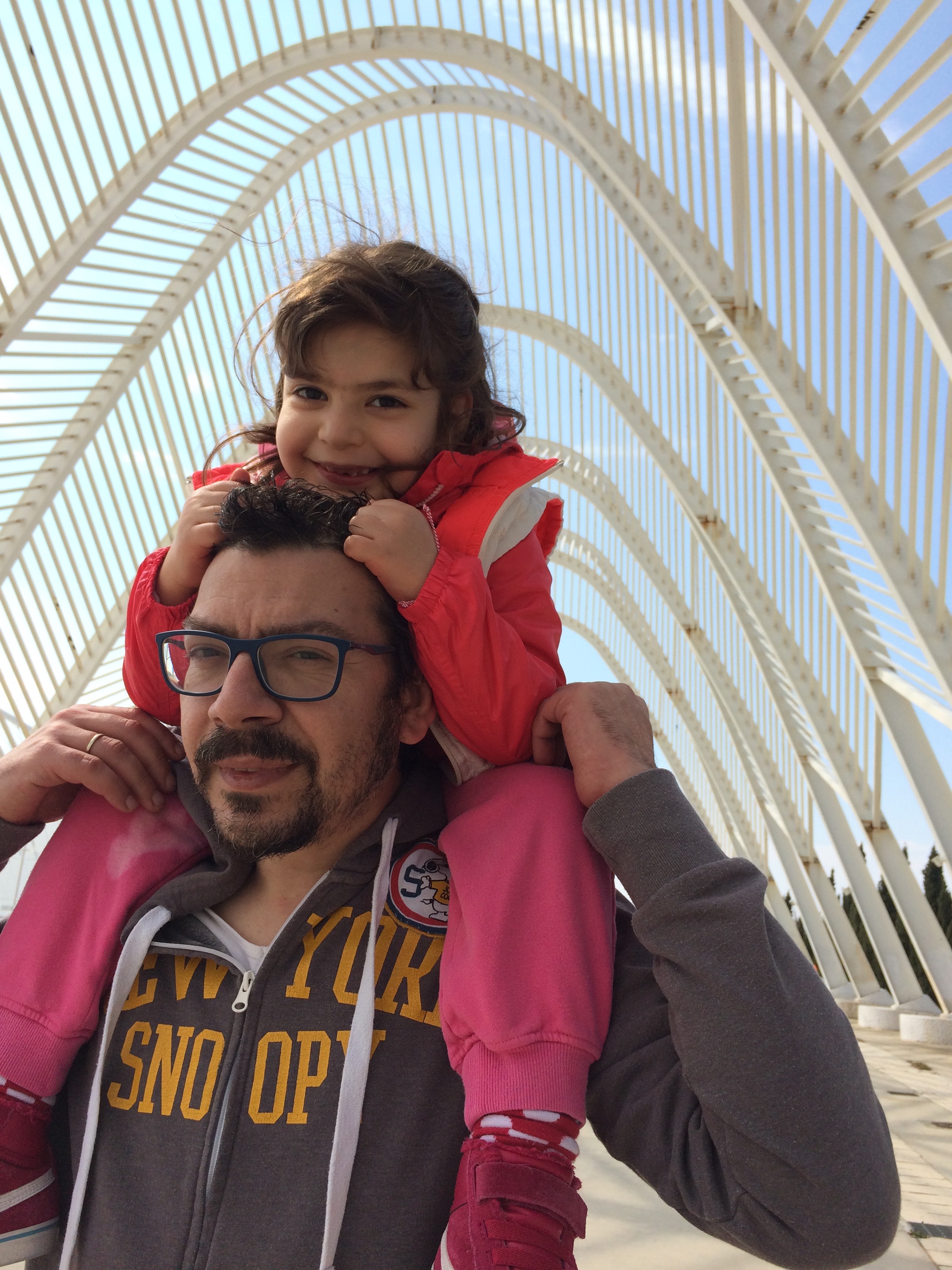
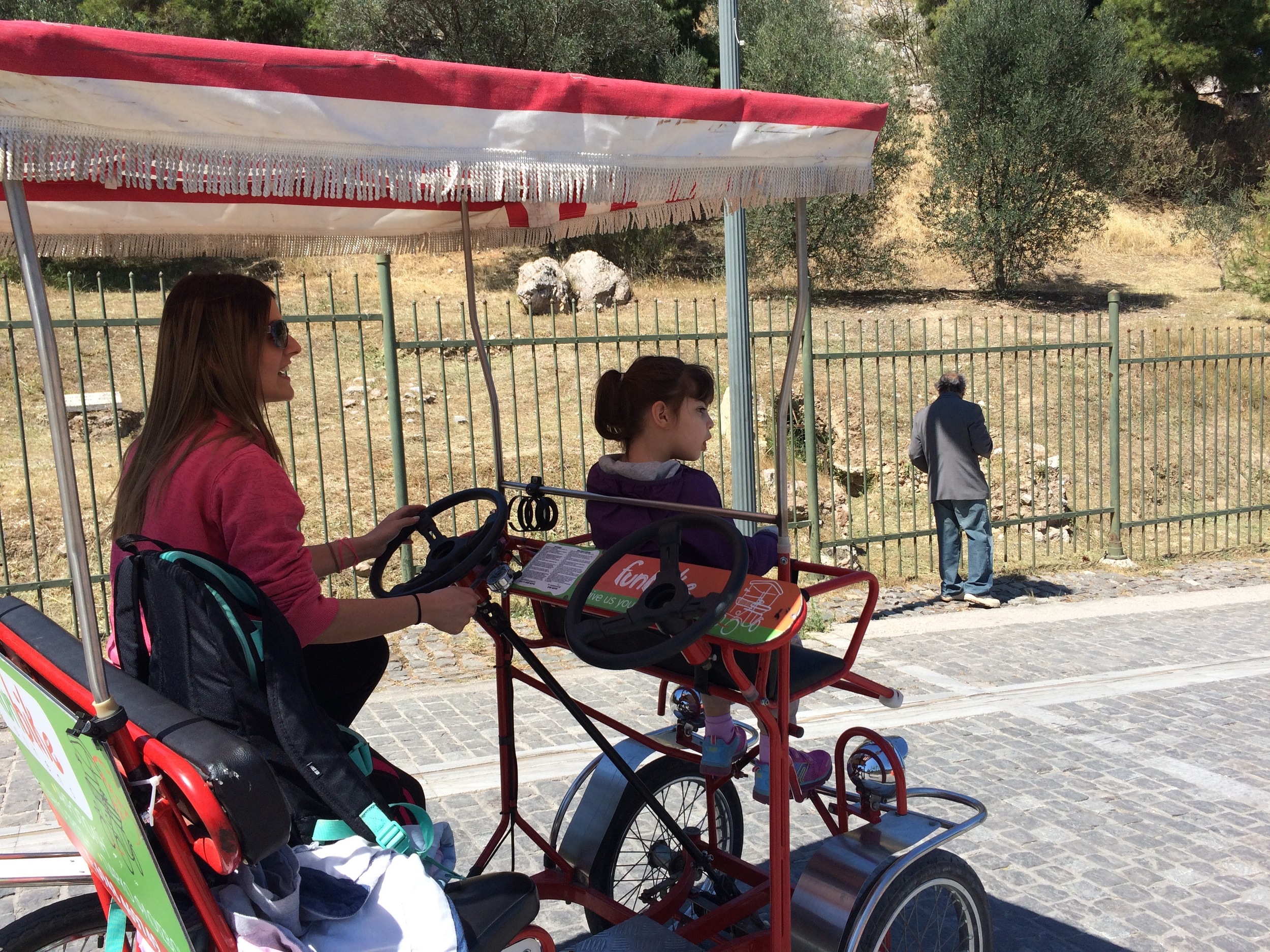
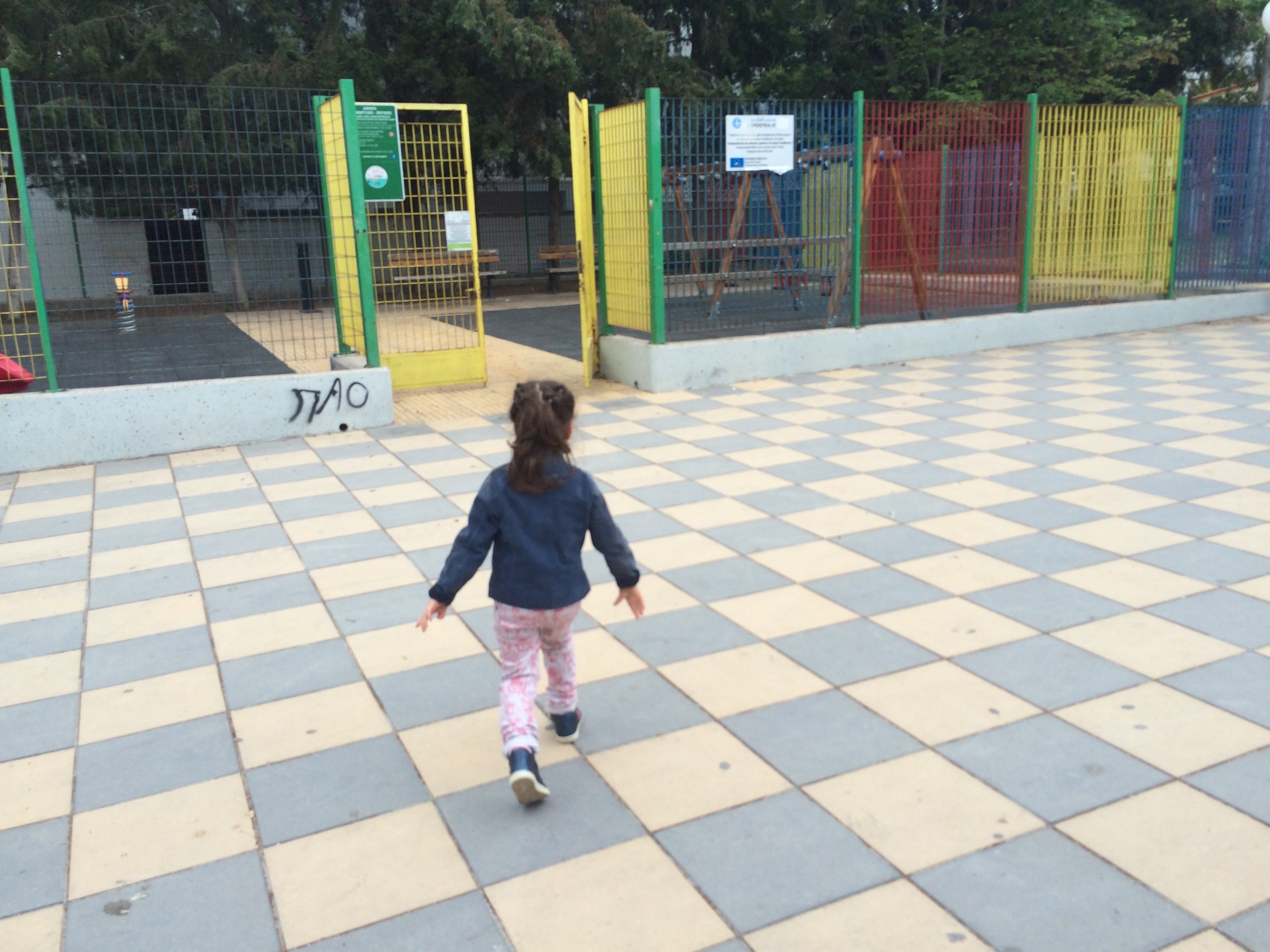
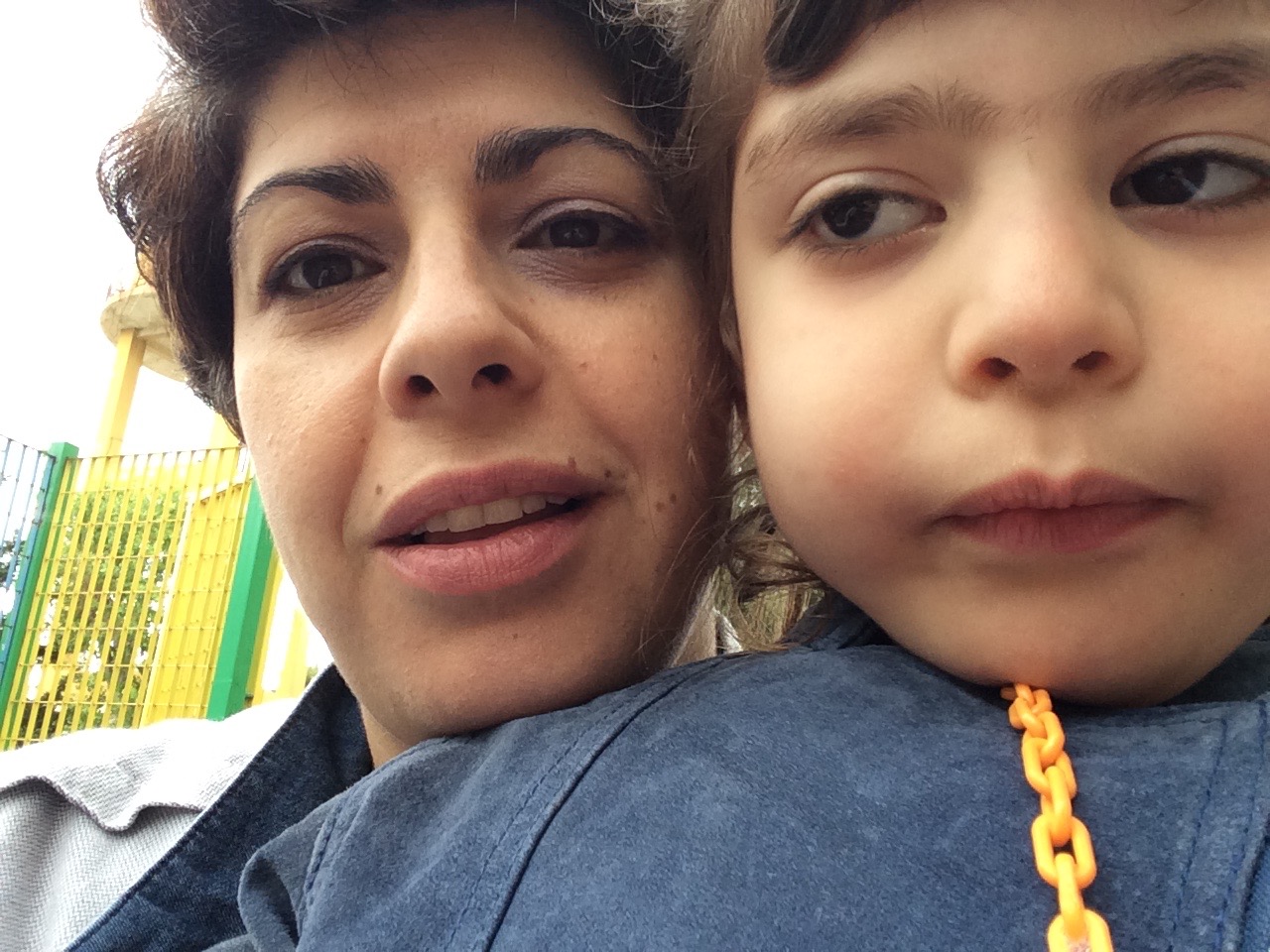
Sierra
Originally posted on Global Genes, yet generously shared here with the author's permission.
How do you tell the story of someone who has no words? As her mother, I can only give my side of the story and just hope that I can put into words just how very special Sierra is in this life.
Sierra was born at midnight on my 29th birthday. Although she had to spend five days in the neonatal intensive care unit (NICU) for ingesting meconium, Sierra was the perfect birthday present in every way. From birth, she was an easy and happy baby. She always had plenty of smiles and giggles to share. As new parents, we were elated and mesmerized by “our little burrito” (Sierra loved to be swaddled in the early months).
Unfortunately, Sierra was also plagued with ear infections and respiratory problems for much of her first year. She spent many nights screaming and even spent a week in the hospital with pneumonia. Even then, she handled these illnesses better than most children would. We were so caught up with the illnesses that it was not until Sierra was eight months old that I realized that she was not sitting up yet. We contacted our doctor who recommended seeing a neurologist, a developmental pediatrician and an Early Intervention program. As Sierra got a little older, our fears expanded from her gross motor delays (caused by hypotonia) to other developmental areas. The doctors recommended that we do genetic testing. All of the doctors, including the neurogeneticist who completed the testing, thought that Sierra just had hypotonia and that she would “just grow out of it.”
I will never forget the day (Friday, Nov. 9th, 2007) that I got the call telling me about Sierra. I was six months pregnant with my second daughter, when a genetic counselor called and said that they had found a chromosomal deletion. They told me about the deletion (22q13), that Sierra was mentally retarded and not to look on the Internet until after we met with them for a consultation. It is amazing how much a couple of minutes can alter your whole universe. I do not think anyone can quite understand a moment like that. I will share my husband’s reaction, a very intimate moment, only because I think it puts the feelings into perspective. When I told him about the phone call, he cried, he cursed, he threw furniture, he punched a wall and then he sat on the couch and said, “it’s okay; Sierra and I will be best friends for life.”
Sierra is a happy, beautiful little girl. I do not think anyone who looked at her beautiful face would know that she has a chromosomal deletion (Phelan-McDermid syndrome). However, if they spent a little time watching her, they would soon realize that she’s “different.” Even more, if they spent a little time trying to get to know her, they would come to love those differences.
In the years since her diagnosis, I am still amazed at the wave of emotions that come and go. In the beginning, I grieved the loss of things that she may never experience (close friends, love, being a mother…). The wonderful thing about time is that the feelings of grief comes less often. They have been replaced with pure gratitude for having Sierra in my life. She has most assuredly given me a new outlook on life. I, like so many others, have taken so much for granted. I am envious of Sierra’s overwhelming joy of the simple things in life (jumping up and down, going for a car ride, swinging, being tickled and hugged, watching Sesame Street…). I feel fortunate every day of my life that I was chosen to be her mother. Every day I am amazed by her ability to overcome the challenge(s) of the day. She wakes up with a smile and goes to bed with a smile, despite all that she has to deal with. How many of us can say the same, despite dealing with so much less?
Sierra cannot speak. Although she has no words, when she looks you in the eye, you know that she has so much to say. Recently, she has been getting frustrated with not being able to communicate or, even more so, with our lack of ability to understand what she wants to say. I simply cannot imagine not being able to communicate my wants and my needs. Yet, despite her inability to speak, I am in awe of the ways that she has learned to communicate. She will grab the TV remote if she wants to watch a show, stand at the dining room table if she wants to eat, go to the front door if she wants to go for a walk or car ride, and my favorite, take your hand in hers to lead you to what she wants. Although these are wonderful strides, they simply are not enough. We have spent days comforting our daughter as she screamed in pain. We have watched countless doctors helplessly search for the causes of this pain, but to no avail because they have no idea where to search.
My hope for writing this story is to help people realize that Sierra is not just a diagnosis. She is a wonderful child that if you took a step back from her “differences” and tried to know her, you would simply find a precious little girl who loves to laugh, whose smile can melt your heart and who is so easy to love. My eternal hope for Sierra is that through science and technology, she will one day be able to tell her wants and needs and even more so, her own story.
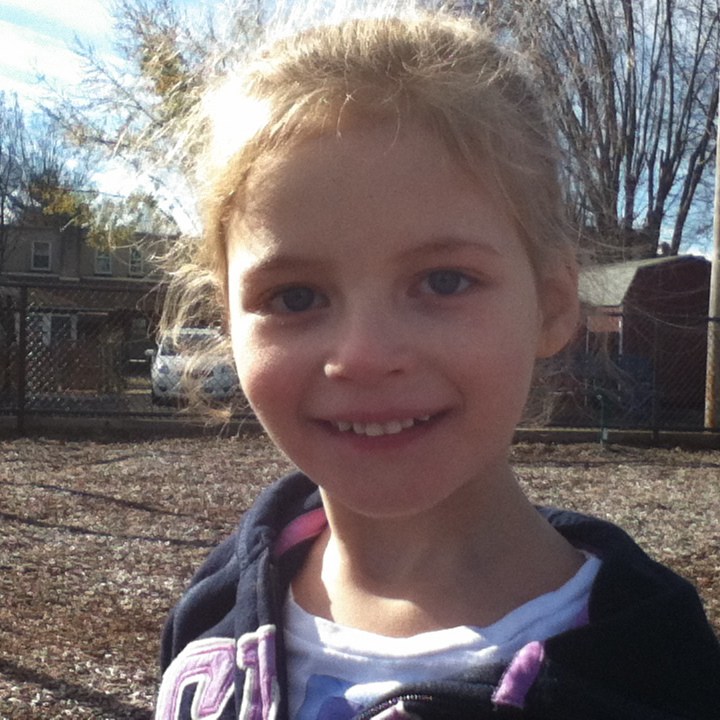
Amelia
This is a news article about Amelia and her service dog, Cora.
By Gina Kabat
Fourth grade student Amelia Prigge might not be very talkative in class, but what she is able to accomplish in a day with the help of her service dog Cora speaks volumes.
They have become a dynamic duo. Each day they get ready for school, ride the bus and walk through the doors of Zielanis Elementary School ready to learn and enrich their lives, each in their own ways. Amelia and her companion embark on a friendship in making milestones learning each other's mannerisms, movements, behaviors and means to communicate. Like two new best friends, they enjoy each other's company even if they do not have much to say with words.
Diagnosed with 22q13-a type of deletion syndrome affecting a portion of a chromosome-since the age of 4, Amelia's needs require her to have speech therapy as well as adaptive regular and special educational classes that are level appropriate. For most of her childhood, her methods of indicating a need have been uniquely her own, as with many children recognized on the autism spectrum. Her verbal skills are at a plateau to a level where she can use some sign language and an electronic reader.
Additionally, her ability to disassociate with levels of danger or adverse situations requires Amelia to need constant supervision. As Amelia grows older, her ability to function independently will require the relationship of a service companion to alert her and bring attention to immediate needs, dangers or behaviors. For Amelia, having Cora beside her brings a sense of calm and comfort. Cora's ability to sense danger or to alert Amelia when she is not behaving appropriately is a top priority.
Stepping in to protect
Cora will position herself between Amelia and perceived danger. "She has already demonstrated this," Amelia's mom Rebecca said. Cora has already kept Amelia from running away from the school building and approaching large bodies of water. At just one year old, this stealthy, steadfast black German Shepherd's training began almost immediately after she was a puppy to help others in the world of healing and service.
"Amelia made very little eye contact and did not sit up like other babies when she was nine months old," her mother Rebecca stated. "I knew something was different."
At that time, doctors administered skills tests and other behavioral procedures to diagnose Amelia's condition. What she has is rare but treatable and within the realm of a fully productive and meaningful life, according to her diagnosis. Her efforts to learn and adapt have been commendable since her formal diagnosis. Amelia's needs place her on the autism spectrum with additional in-house, after-school therapy as well.
For many years, Amelia would attend horse therapy at Rhythm Therapeutic Riding in Plymouth and developed a relationship with the owner. Despite the loss of financial funding made available to Amelia's family at a county level to further attend the horse ranch, owners wanted to see Amelia continue with the healing effects of animals.
"Cora is a blessing," mom said. Through the kindness and generosity of The Midwest Council for Children with Disabilities (MCCD) and their organizers, Cora was placed in their lives at no charge to the family. A group of small business owners wanting to provide financial assistance to children challenged physically, developmentally or cognitively founded the Midwest Council for Children with Disabilities in 1997. MCCD provides families of these children the means to pursue medical treatments and therapies that are not covered by health insurance.
A lot of support from school
Amelia has attended Zielanis Elementary School since first grade. "We are overwhelmed by the support and positive foundation all of the administrators, teachers and students have provided us," Rebecca stated. When Rebecca informed the school Amelia was going to receive a service dog, many steps were involved in the process. "They took action right away and welcomed Cora and informed the students," Rebecca added.
"We started talking to the school about the possibility of a service dog a few years ago. Since we found out Cora was coming Chris and I had a meeting at school with Dawn Mueller, Mr. Ramminger and Mr. Propson. As we got closer to her arrival the students were informed, the fourth grade parents were informed and we continued communication between school and home. Amelia's teachers were involved in a conference call with the dog trainer in California, and we had another family from the community do a presentation to the class about service dogs since they also have one," Rebecca recalled.
Staff and administrators took the lead early on. A considerable amount of planning was involved in preparing for Cora's arrival. "We wanted to ensure everyone was informed and were able to make appropriate decisions in knowing Cora's responsibilities," School Psychologist Dawn Mueller said. Planning began last spring, when Amelia's mother informed school that Cora was being trained and would be available as Amelia's service dog sometime in the fall. Rebecca kept the school staff informed over the summer months regarding the progress Cora was making in her training.
This is the first time in Zielanis' history a service dog walks the halls with an enrolled student. "Once school started and there was a known arrival date for Cora, a letter was sent home to all parents of fourth grade students informing them of Cora's arrival date at school, her purpose, and asking them to communicate with school if they had questions or if their child had health concerns or allergies for which we would need to accommodate," Dawn added.
Rebecca gave written consent for the school to provide the information necessary to all the fourth graders and their parents, as well as all of the students at Zielanis to prepare them for a service dog.
Presentation helps pave the way
On Oct. 12, Jana and Tom Gierke-Kiel residents who have their own service dog-provided a presentation to all the fourth grade students about their service dog and what their service dog's role was in supporting Tom because of his disability. Tom and Jana also shared with the kids what their role needed to be once Cora arrived at school.
Students were informed that Cora was working while at school and that she could not be played with or petted. All of the students at Zielanis were provided information about Cora at the Oct. 22 Monday morning meeting. Mr. Propson and Mr. Ramminger shared information about Cora and Amelia and all of the students were told about Cora's job while she was at school. The following Monday, Oct. 29, all of the students were introduced to Cora at the Monday morning meeting. "The students at Zielanis have been wonderful in knowing not to touch Cora while at school," Dawn said.
Typically, Amelia sits at her desk in Mrs. Schneider's classroom with a special writing tablet and the assistance of her paraprofessional Emily Bushman. She is more involved in her classroom activities among students. Cora knows she is in working mode but allows herself the luxury of lying in the floor beside her best friend. There is a gentle stillness about these two. The tether between them gives them enough room to be comfortable yet gently aware they need each other.
The school staff has observed Amelia to be more calm and confident. She is more cooperative, some said. She is also more willing to interact with other students and staff. Overall, she seems happier. Amelia is also more willing to try difficult or new tasks concerning the academic tasks she is expected to complete. Her ability to transition between tasks and the different environments at school (e.g., from the classroom to recess or phy ed, etc.) has improved.
Collectively, all of Amelia's teachers and those involved with the process are hopeful Cora will help in providing for a successful transition for Amelia to the Middle School and for any other changes in her life in the future.
At home, their rural country setting allows for a scenic image of their children getting off the school bus, but instead of the family dog waiting patiently roadside for the kids, she's right there with them. Rebecca and her husband Chris try to keep things normal at home. When the kids get off the bus, it's just like many family scenes; homework, dinner, dishes and the family dog laying underneath the table. In many respects, Cora may feel like her workday is done. She relaxes a bit after her vest is off. This is her down time and Amelia is aware she will be concentrating on her tasks with in-home autism therapy soon.
Nervous at first, but it's fine
"I am very glad our family was given the opportunity to allow Cora to be with Amelia at school. I was very nervous at the beginning, but with the continued support and communication between the staff and myself, we have been able to make this adventure for Amelia a success thus far. Having a service dog will allow Amelia to be so much more independent and so much safer in the outside world. No more being strapped into strollers or in shopping carts wherever we go. We are excited to watch the two of them develop together and I cannot wait to see what lies for them in the future," Rebecca said.
"Some of the changes we have noticed in Amelia is she seems to take responsibility of things now. We ask her to take Cora's leash and she does. She also feeds Cora every afternoon once she gets home from school and does so willingly. She seems much more laid back and less impulsive," Rebecca added. "We took a walk for the first time ever this past weekend without Amelia having to be in a stroller. She used to run off and go wherever she wanted in the past. Now with Cora she is tethered and can walk along side us."
Although Cora has only been with the family since the latter part of October, she has made a wealth of friends in her new environment. It could be said Cora is the new kid in class and assimilating well. Cora's presence in the school has also helped the other children realize not everyone is the same in this world. Everyone is different and has different needs. "Amelia cannot express her needs or her thoughts; we only hope Cora makes it a little easier for her," Rebecca said.
For Amelia and her companion Cora, together they keep learning. They keep each other in check, they speak a non-verbal language, and for them, this might be the best lesson of all.
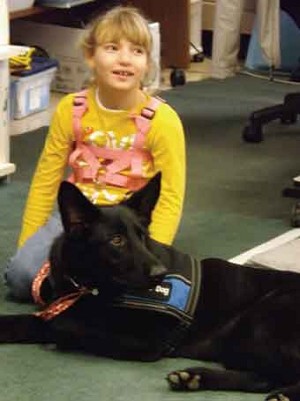
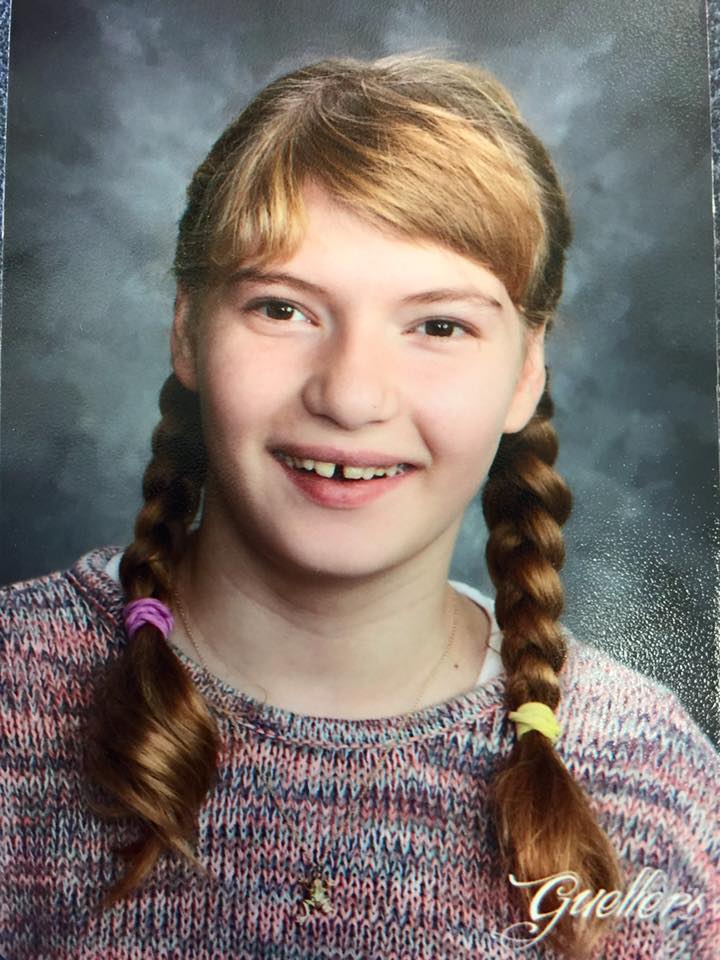
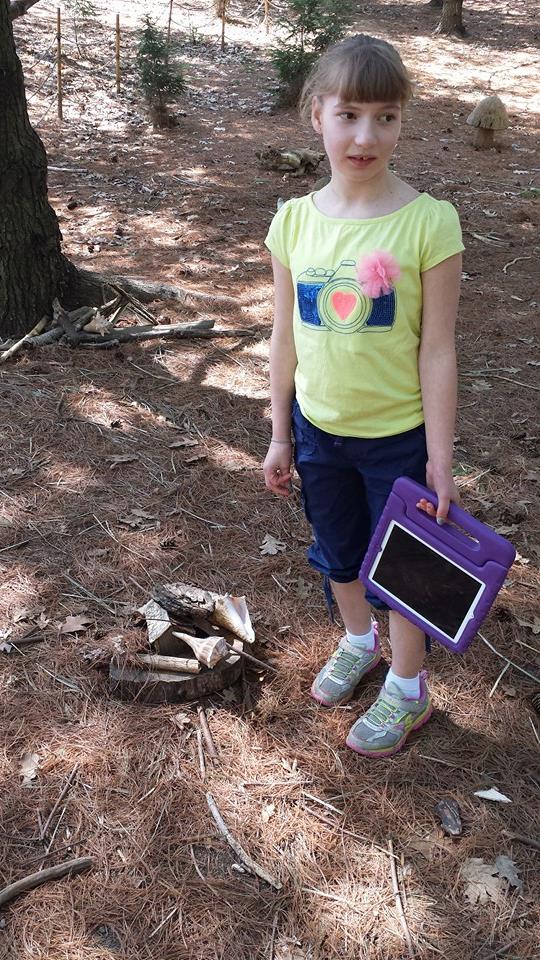
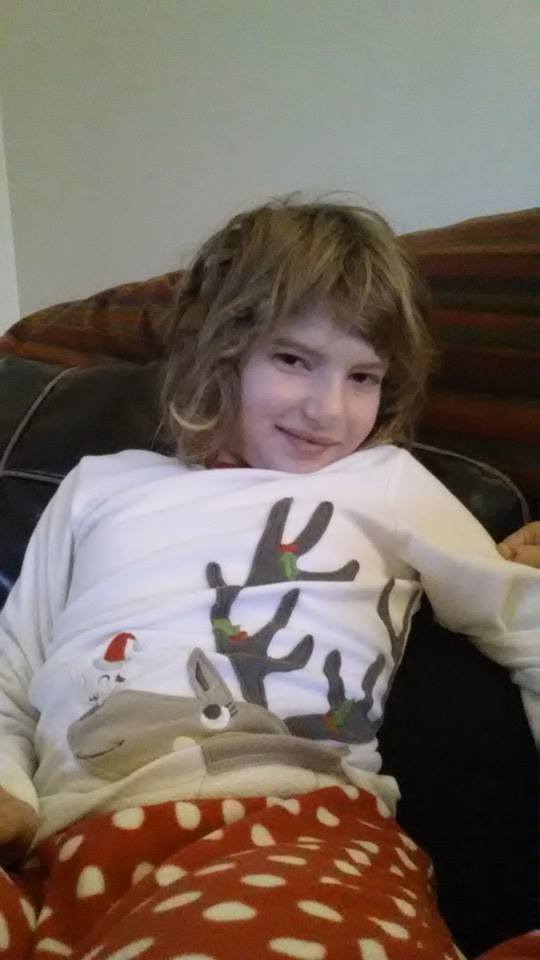
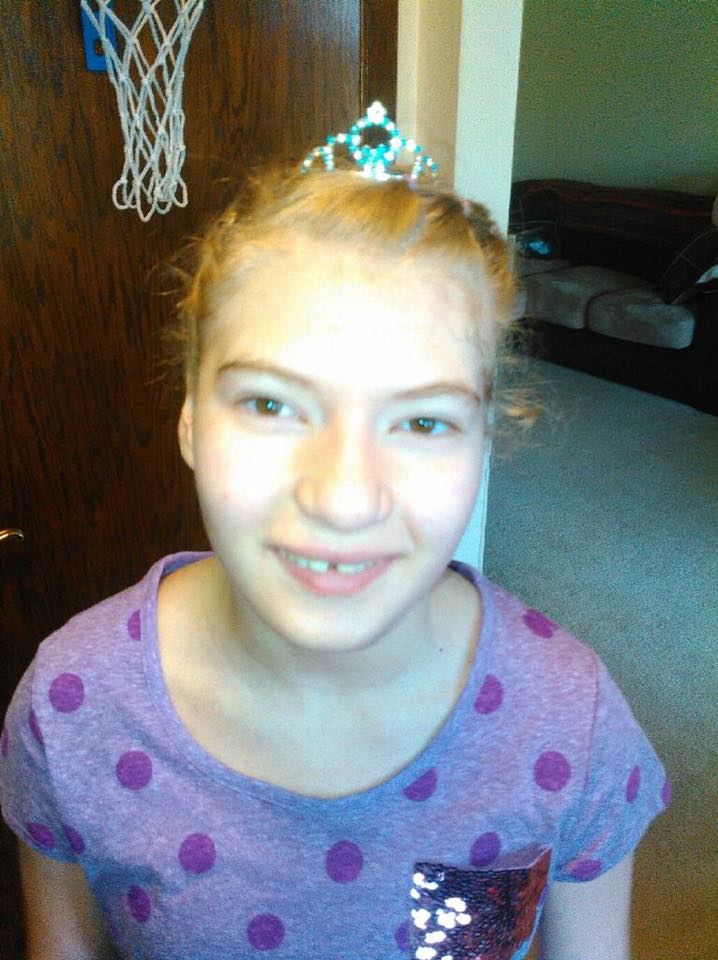
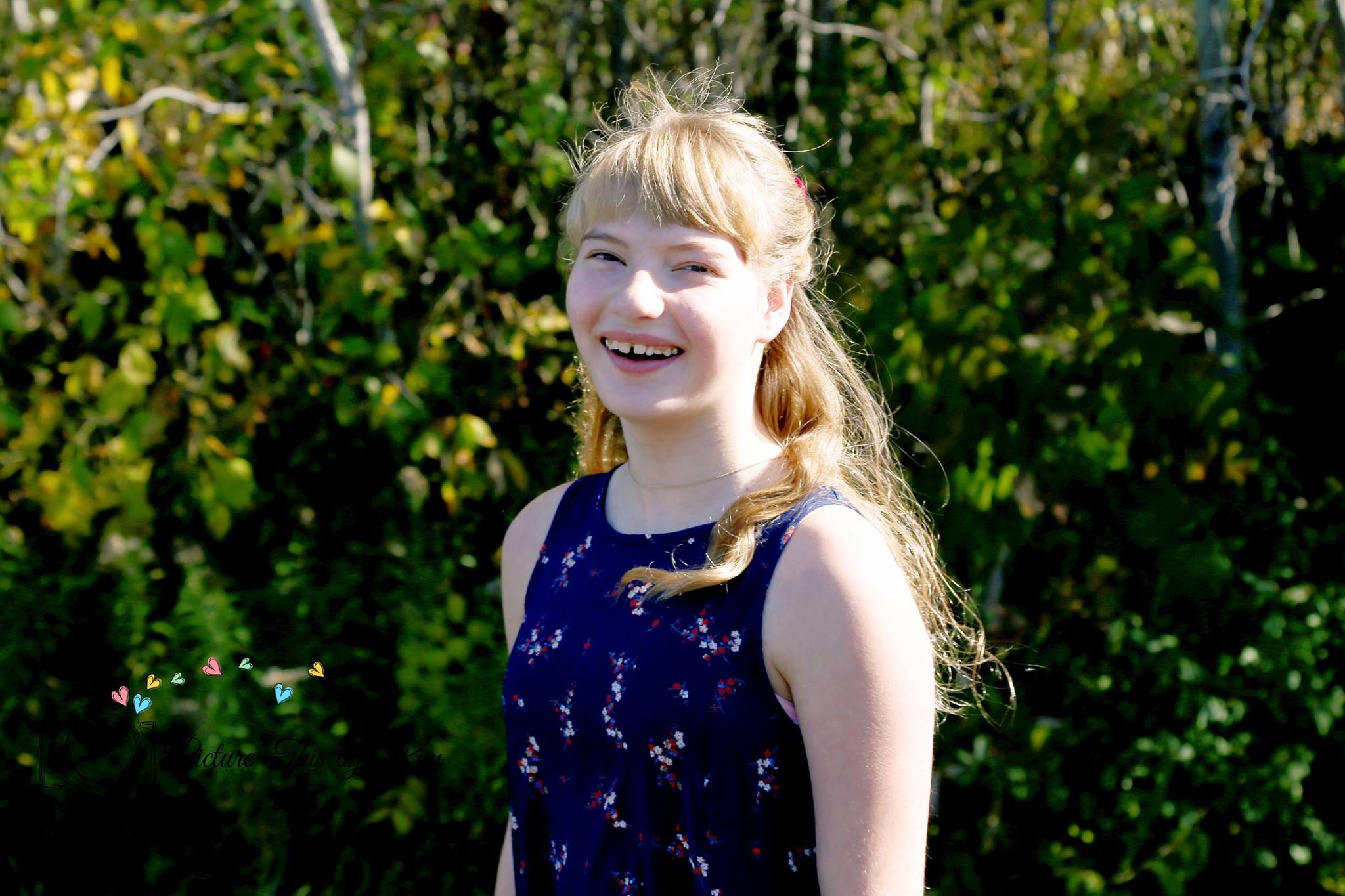
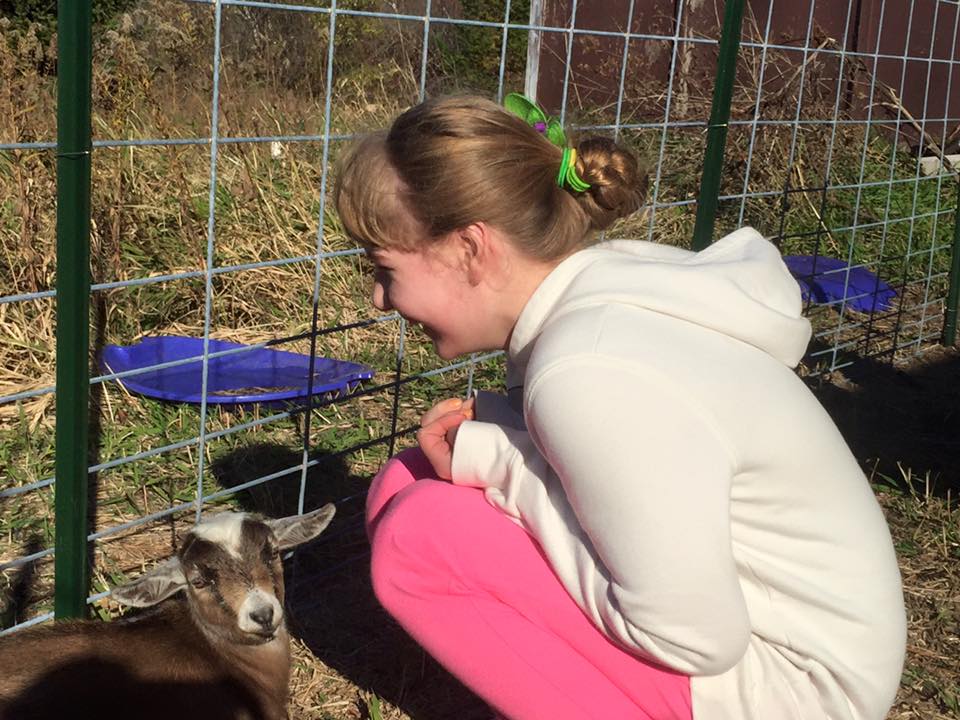
Bella
Dear Phelan McDermid Syndrome,
I am writing this to you because I am very confused as to why you have arrived at our door step. Not just you but your friends, polymicrogyria, hypotonia and cortical visual impairment, with their little groupies, seizures, acid reflux and failure to thrive. I just don't understand why you are here. I did not invite you. I was the pregnant woman who ate healthy, avoided my beloved ibuprofen, indulged in an occasional coffee (but immediately worried about it, so I really only ever drank half a cup). So why did you come to torment my sweet baby girl, to try to steal her from us? I did everything I could to keep you away. On the day I was told you were here I really didn't understand all the ways in which you would effect our lives. Now I do.
Because of you, Bella will never tell me she loves me or call me "Mama". Because of you, Bella will never play jump rope with her sisters or tattle on them for being mean. Because of you, I will never see her dance at her wedding or chase my grand babies. These are just to name a few. Also, because of you, I sometimes cry myself to sleep. Because of you, I miss things like snow skiing with my big girls and I often feel so alone and so very tired. You effect everyone in our family. Because of you, my husband often goes to sleep alone. Because of you, all of our extra money goes to ways to combat you instead of to fun things like vacations. Because of you, my big girls have told me they never get enough time with me and it makes them feel cheated. Worst of all, because of you, I know that I will attend my baby girl's funeral...something no parent should have to endure.
To say these things make me angry or sad wouldn't fully span the scope of my feelings. Some days your arrival feels like a tragedy that I will never get over. Some days I hate you so much that I just want to scream and hit something.
But then there is this...
Because of you, I will never hear my baby say that she hates me, like every little girl/teen says at some point. Because of you, Bella wants me to rock her every night and snuggle with her every day even though she is five. Also, because of you, I have experienced unbelievable joy over such small but beautiful things...Bella grabbing my hand or hearing her most spectacular Ernie-like giggle. Because of you, I have found strength like I have never known I had. Because of you I have felt the most intense gratefulness for every day she is healthy and happy. Because of you, in a quiet moment my 11-year-old told me she thought I was so brave...the biggest compliment I have ever received.
And then I think about my husband who has used his mechanical know-how to create the most amazing things to help ease the burden of having all of you around. Because of you, I have seen a tender side of my husband that makes me love him even more. Because of you, our family sings and dances just to see Bella smile. Because of you, my older girls will walk up to someone in a wheelchair and introduce themselves. Because of you, I have seen a nurturing, selflessness in my 9 year old that is rare in one so young. Because of you, my big girls are so devoted to their little sister they both aspire to be therapists when they grow up (and if they are, they will be amazing). Because of you, our family has adapted to what our life is, fought to find ways to make every day special and grown closer in that battle.
I imagine we will never know why you decided to show up, or even whether you have been a blessing or a curse. I do know that because of you, we all rally behind Bella to fight against you every, single, day. Because of you, we fight together, we love stronger, we hold tighter. Because of you, we cherish every moment. If you had not become our uninvited guest, we may be a very different family but maybe, just maybe, this family is exactly what we were meant to be.

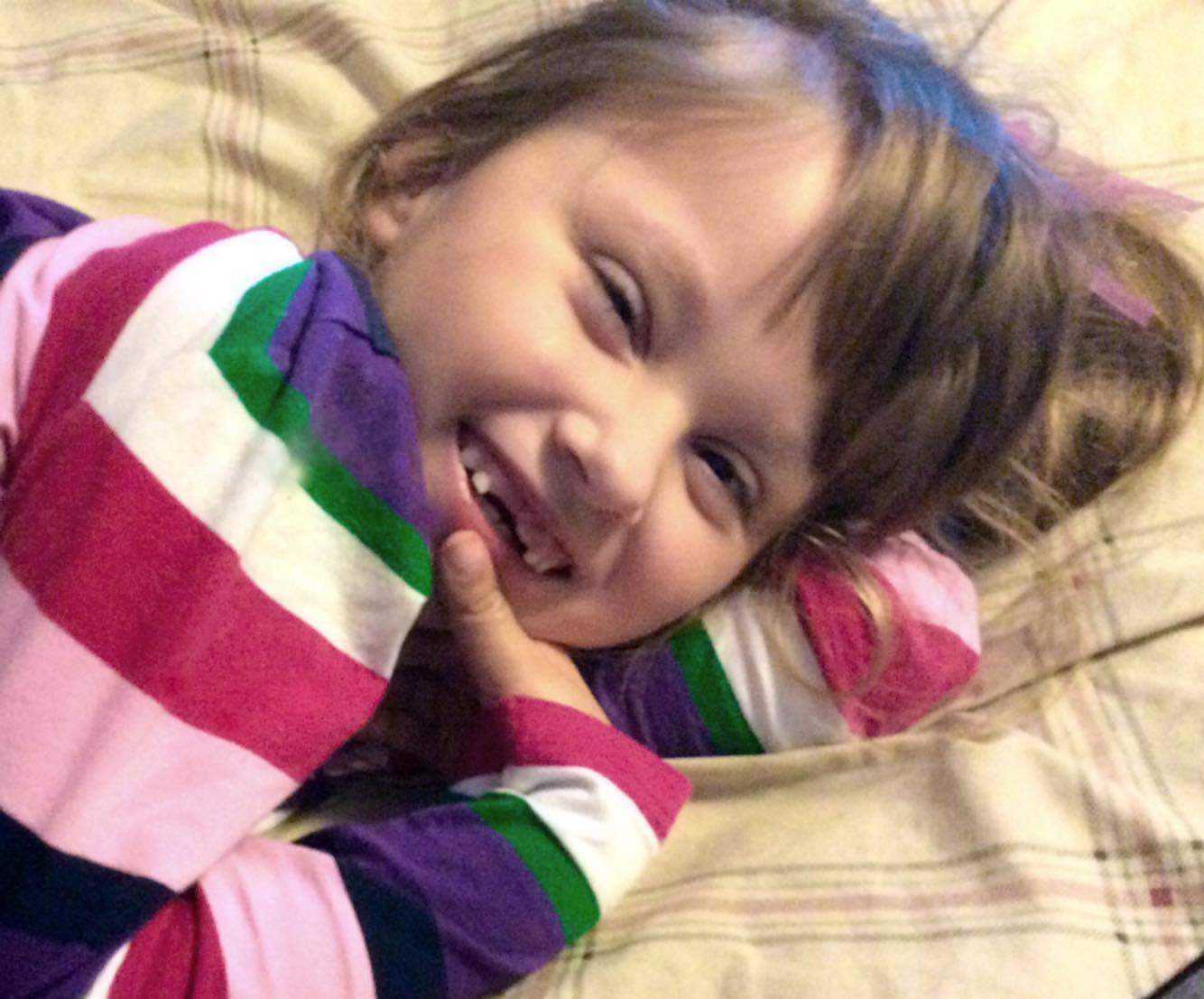
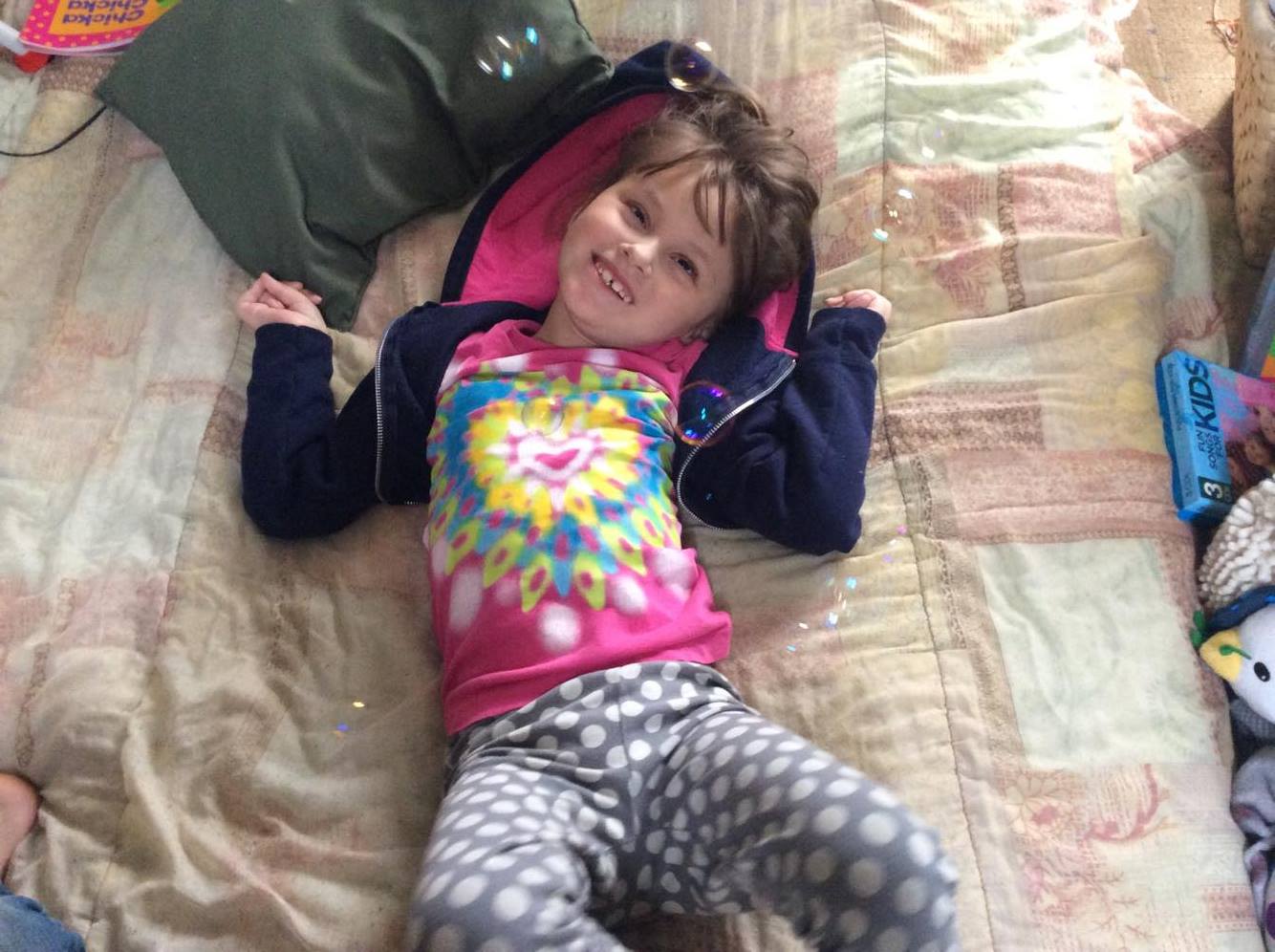
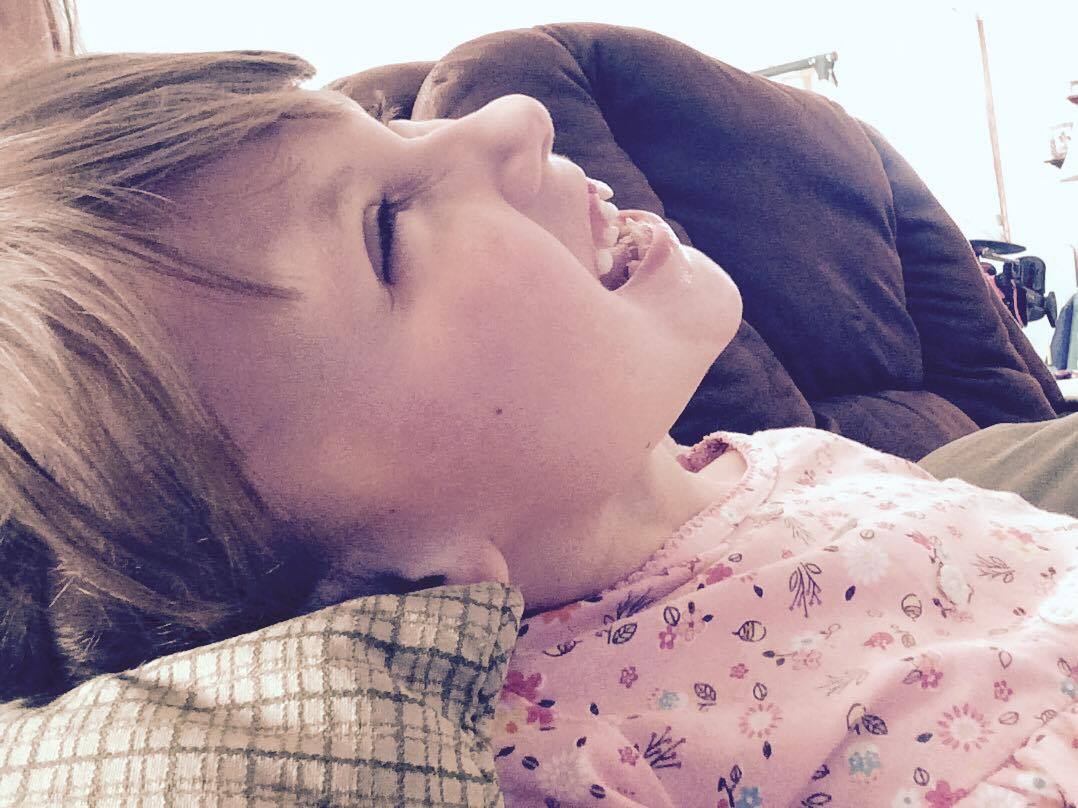
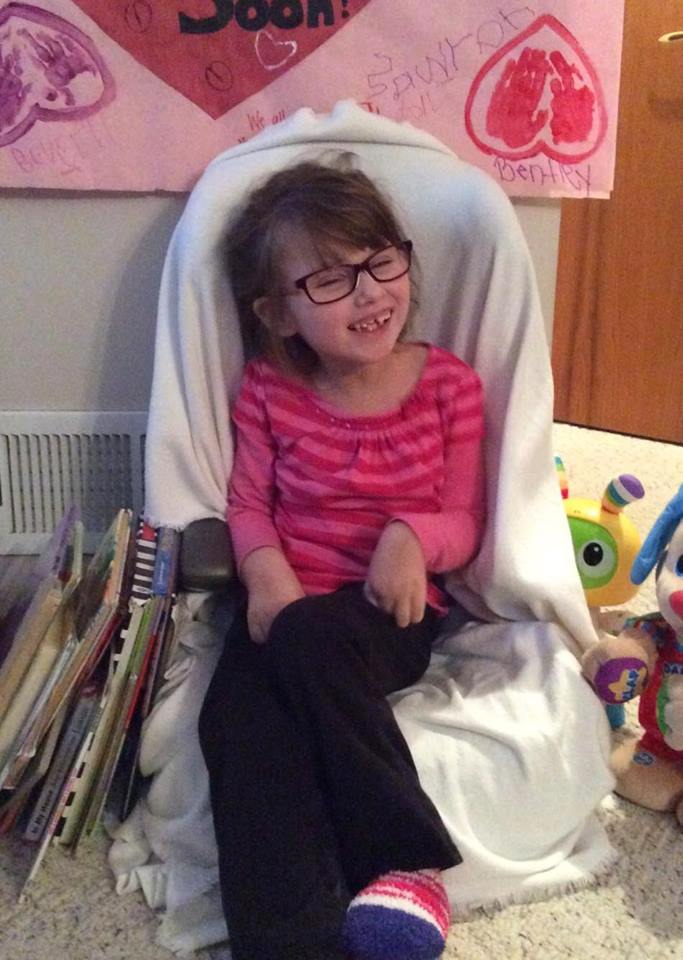
Christopher
Christopher turned 35 in January and has Phelan-McDermid syndrome. When younger he would lug out an old chalkboard, bat, baseball, NY Yankees batting helmet and a NY Yankees baseball cap. One tree was 1st base, the woodpile was 2nd, another tree was third and the back stoop was home. He would place the baseball cap on his head, take the field and toss the ball up and catch it three times. That was playing the field.
He would then switch to his batting helmet. Pick up the bat and ball. Toss the ball in the air, hit it, run to first base. Pick up the ball and bat and repeat. If he missed the ball when batting, that was an out. When he made 3 outs and the side changed and he took the field. And the batting helmet came off and the baseball cap went on!
This was a game he made up on his own!
He would stop from time to time, to take a drink from his water bottle or to give you an update on the score! There were times he won and times he lost. When the game was over, he made his way back inside, give you a recap of the game while he was carrying in stuff back into the house.
One of the highlights for him was when we would go to the beach and play wiffle ball. His slides and rolls to get to the base with grins from ear to ear were priceless. Sand flying and all you saw was his smile.
We had never heard the word regression. When it came, we were blindsided. We were never prepared to lose our fun loving son. He was empty, quiet and withdrawn. He needed assistance for all daily skills, fatigued so easily and just simply existed.
Changes were made and in the past 6 months we have seen a very slow return of some skills but struggled with consistency.
But yesterday was the high point of this journey. Christopher finding a stray baseball in the yard and then playing the game he enjoyed gives us hope that we will recover more. #PhelanLucky #neverstopbelieving
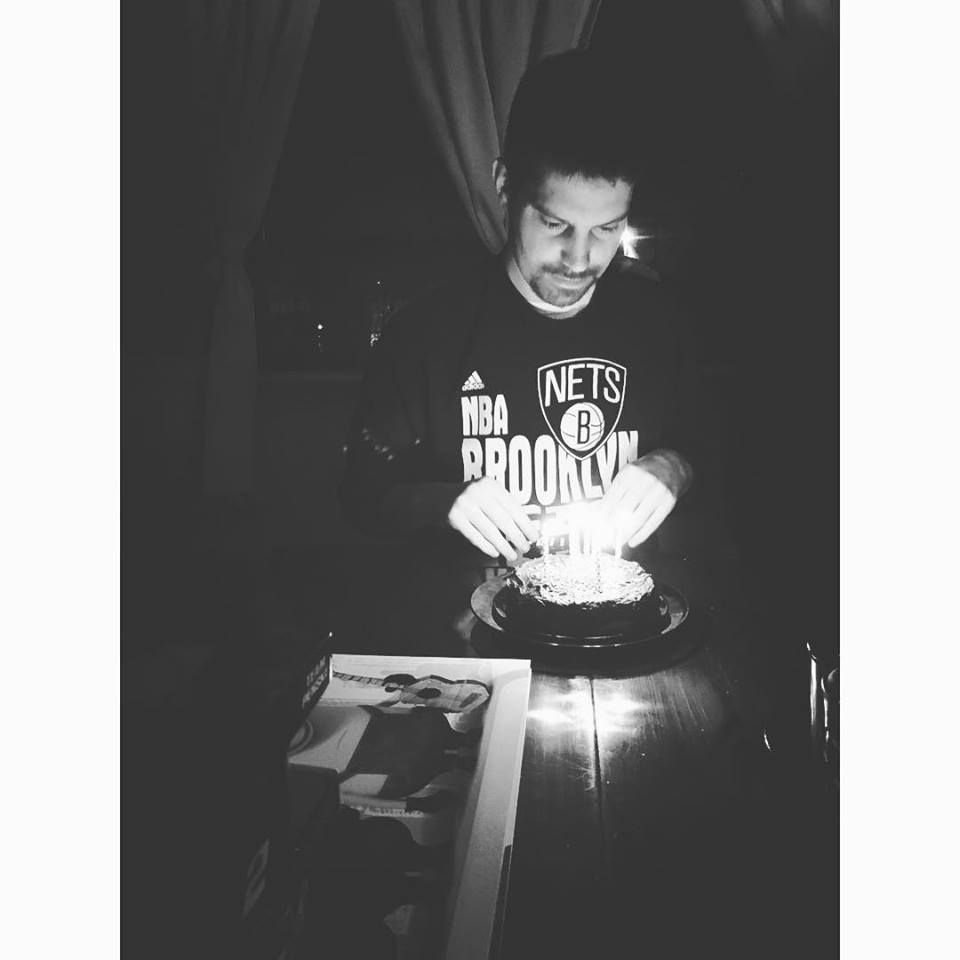
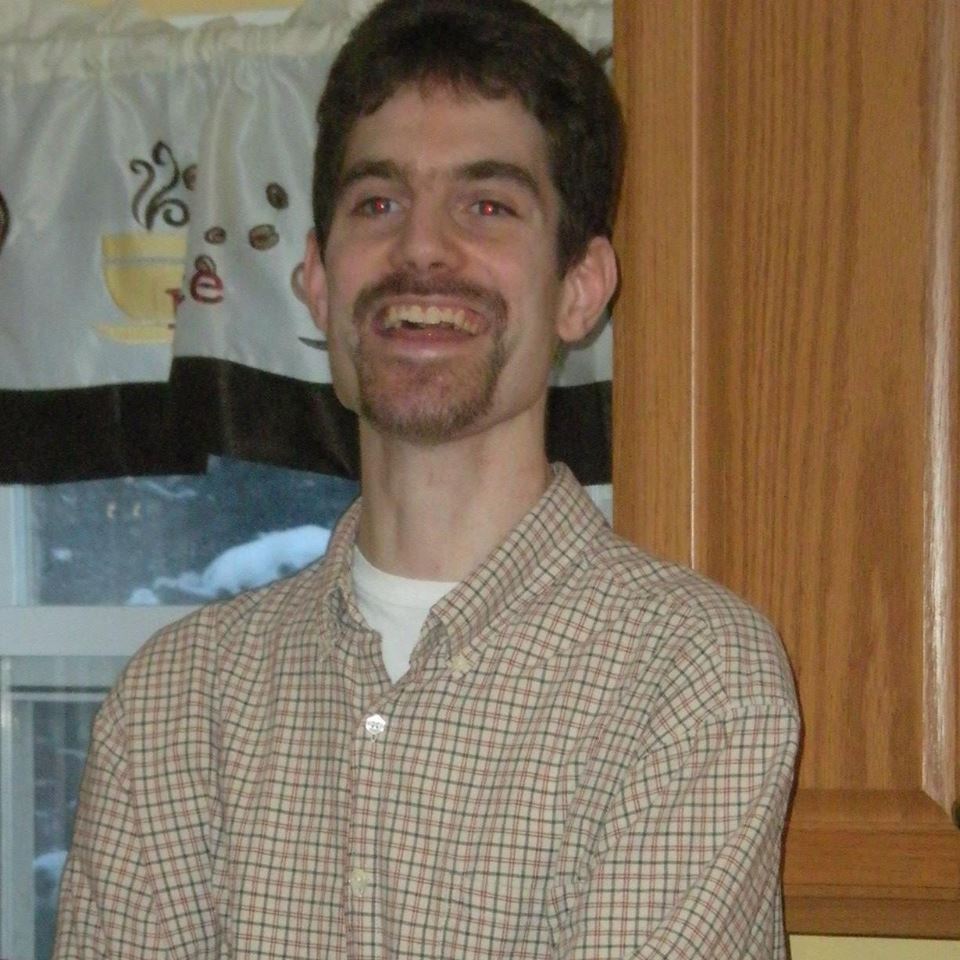
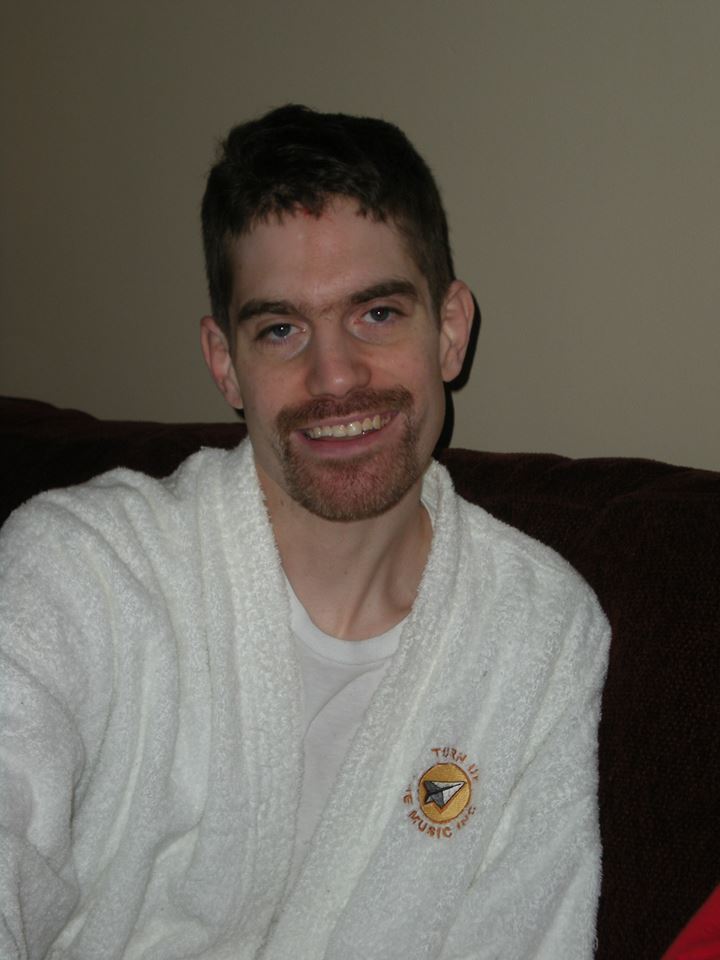
Mikey
Dear Phelan McDermid Syndrome,
When I met you about 6 months ago I had no idea what questions to ask let alone know how to feel about you. I had no idea what you were or how my whole life would be consumed by you. I used the Phelan McDermid Syndrome Foundation(PMSF) website, www.pmsf.org, to gain a lot of knowledge about you and luckily was able to connect with an awesome family support group on Facebook thanks to PMSF. Then I get questions like the following one, and instantaneously I found myself inspired.
"Oh WOW, did you even get a chance to grieve his diagnosis?" Asked my son Mikey's therapist.
While I understood the question I didn't understand why it was asked and it actually got on my nerves that it was asked in the first place.
You see, Mikey has a rare chromosome deletion called Phelan McDermid Syndrome. It is a deletion(sometimes duplication or translocation) on the long arm of Chromosome 22, which in my son's case, is caused by Ring Chromosome 22. My son's deletion is very small and he is missing only two genes completely and is partially missing a third gene. One of the genes, known as SHANK3, is one of the two he is completely missing and as a result Mikey suffers from global developmental delay, hypotonia(low muscle tone), poor thermoregulation, chronic constipation, and a possible heart condition(have to follow up with cardio) as a result of Phelan McDermid Syndrome. Autism and Epilepsy are also very common in this syndrome. We do not know what the future will hold for our little Mikey, but we know we will get through whatever it is, together.
I will not grieve you Phelan McDermid Syndrome. I have no reason to grieve you. Although you are scary and unknown, my God is greater than you. Although you are downright mean sometimes, my son is ALIVE and I still have approximately 1,300-1,400 other families in this world to relate to. Although Mikey will and does face struggles, you have brought out determination in him that I haven't seen in presidential candidates-let alone anyone I know.
Because of you, Mikey's older brother, Blake, and younger sister, Madison, will always have a heart for special people like their brother. They will learn patience, understanding and compassion they never would have if you didn't enter our lives. Because of you we have met some amazing therapists, specialists, people, etc. Because of you, I now go out of my way to help disabled patrons I see...anywhere. Because of you I have answers and a guideline for Mikey's life. He had baseline testing done for conditions that could possibly shorten his lifespan in relation to you, and now they won't because I have the knowledge that they could be lurking around. Because of you I will forever be an advocate for genetic testing. I am happy we have you and not something MORE rare and severe! Sure, life is harder with you around, making Mikey medically fragile and unable to do normal kid things-like make a snowman or go for a walk on the beach in 100 degree weather, but we love that he is happy, that he will probably believe in Santa and the Easter Bunny for his whole life and he will be our forever sleepover buddy!!
Maybe this isn't how I dreamed my life would be, but if I went back-it would be my dream now. There is nothing better than having your non-verbal child squeeze you tight with thanks, love and gratitude that you understand him and love him no matter what! Mikey is the light of our lives and I wouldn't have him any other way. He brings the best out of people and I love that about him. I thank the Lord for giving me this very special child, I do not and will not grieve about his diagnoses. I will do the Lord a great service by advocating for Mikey and his siblings and helping him meet his full potential.
So upon being asked this question I answered, "what do you mean did I grieve?"
Maybe my response is not typical? Maybe other special needs parents grieve? As far as I'm concerned, there are far worse cases of Phelan McDermid Syndrome and far worse and way more rare syndromes out there. So no, I didn't grieve. I won't grieve. I won't look down on those who do grieve, and I hope they won't look down on me for not grieving. I thanked the Lord that Phelan McDermid Syndrome is something we can live with and I moved forward. I took my son to doctors and specialists where I taught THEM about my son's condition. I advocated and got him necessary testing done. I set up therapies and he is thriving with them and hitting milestones left and right! He currently has 8 therapy appointments a week, totaling 7.5 hrs/wk. Who has the time to grieve when you have a kid that needs extra care?? I certainly don't have that kind of time. If people want to look at me strange when I say "No, I didn't grieve his diagnoses" then bring on the funny looks, because at least I can say I am enjoying my son for as long as God will allow me to.
While I'm not angry with her for asking, it reminded me yet again to just enjoy my son. There is not enough time in the world for me to grieve and enjoy him at the same time.
And besides, even if I wanted to grieve, who has the time to with 3 kids?? I just want to enjoy my children and thank our awesome God for giving them to me.
Love Always,
Mikey's Mama
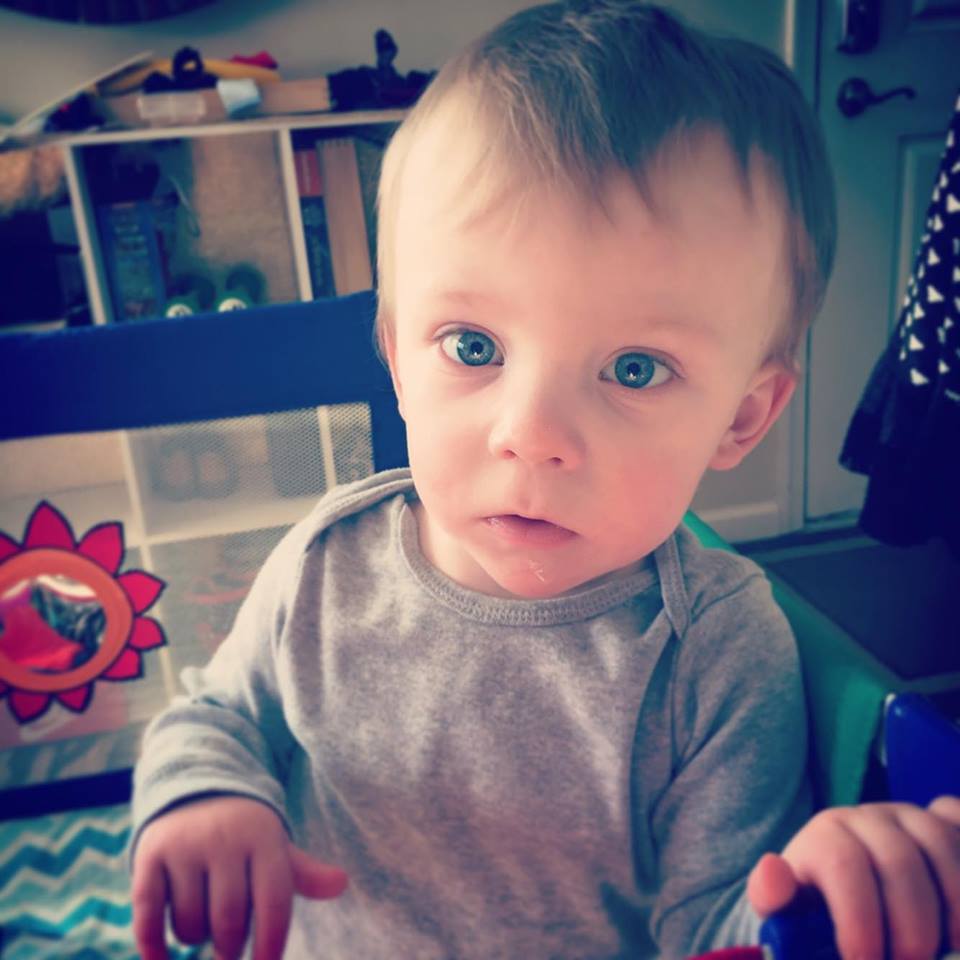
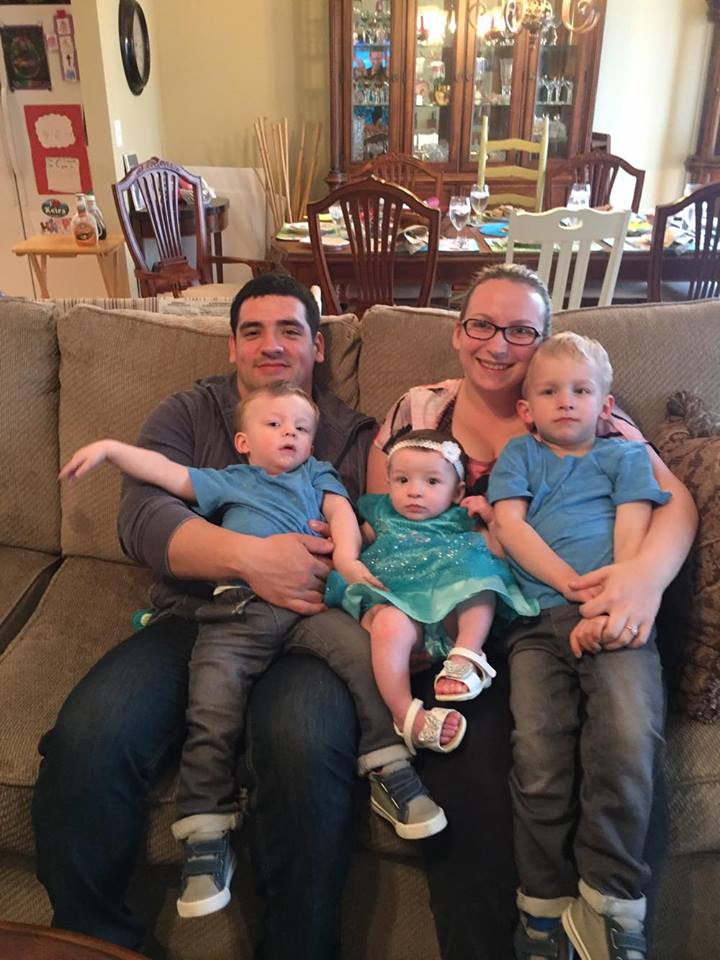
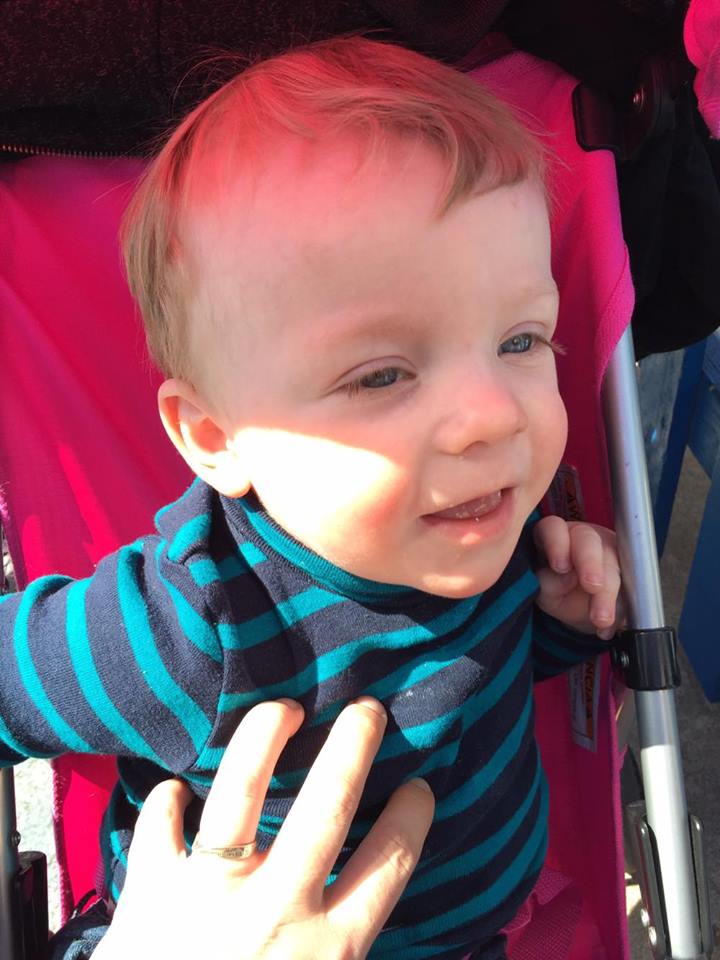
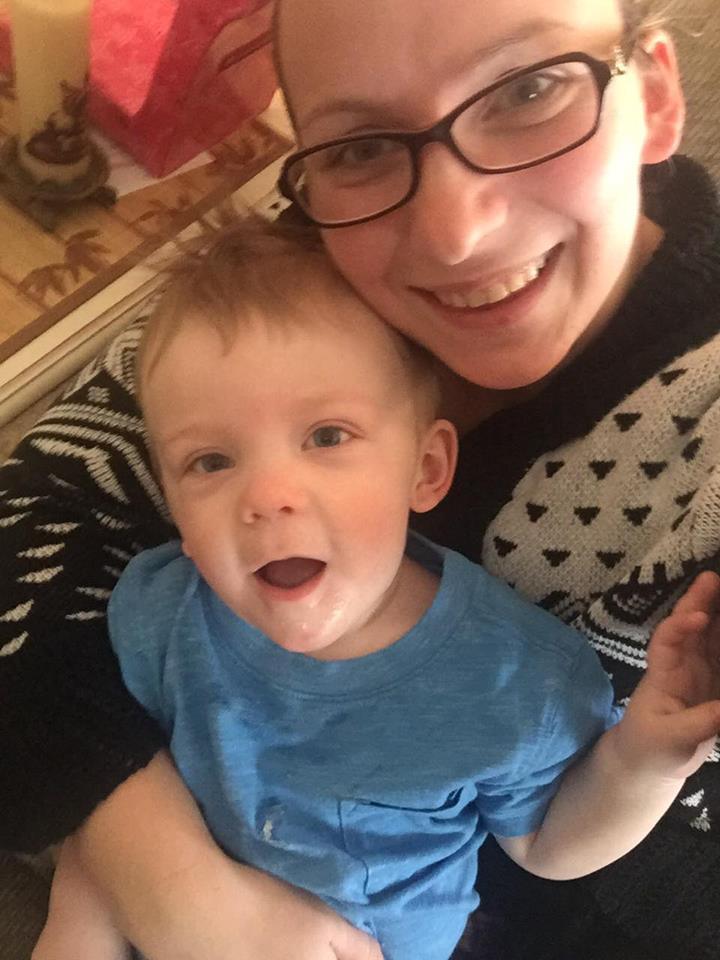
Jacob
Together, Amy & Jacob make art.
Jacob is a 10 year old, non-verbal, autistic child who also has Phelan McDermid Syndrome. He shares the same diagnosis with 1,500 people in the entire world. A few years ago we discovered that Jacob really loves painting. If you could only see his smile when he paints; its really amazing.. it leaves me speechless. I had a wonderful collection of Jacob's painted canvasses hanging up and I thought it would be cool to use what he started and paint something on his canvasses. Well two years later and over a hundred or so paintings... we are still creating together. I love this discovery and love to create something special and unique with each new project.
Here's another writing by Amy, Jacob's mom.
I am glad most people will never know this feeling. The sadness. The hurt. The pain.
I am glad that most families will never have to put their child in a group home for any reason at any age.
This feeling... this right here.. hurts.
Jacob is doing very well. Let's start there. Some behavior issues here and there. But doing so much better.
For the past 2 weeks Jacob had an aversion to meals. We brought him to the Dr a few times to check his throat...ears...lungs.. he was fine. It was behavioral... he lost 4 pounds.. He has already started to eat again. But we still don't know what caused this type of reaction..
I went to the group home on Friday to visit him. Manny was there also to pick up Jake for the night.
Hilda took Jacob gently by the face and got on his level to talk to him. He was so distracted by things. Random things. But he finally focused on her. She said "Jacob you have to listen to daddy. You have to eat your food and be a good boy.. or you can't go" AND he began to cry.
This was the FIRST time I saw him have this kind of reaction to any verbal communication
I cried when I saw this.
I can't even describe what this means.
It is monumental
It's bigger than monumental
He understood her words and emotionally reacted.
I miss Jacob. There is no question about this fact.
But I am also thankful that he is being taken care of so well. I am blessed that he is safe and healthy and loved.
I am glad that most will never have to experience this. But I do want others to know that it is okay.
If and when the time comes to place your special needs child or young adult into a residential facility... it will be okay..
It will be okay.
It will be okay.
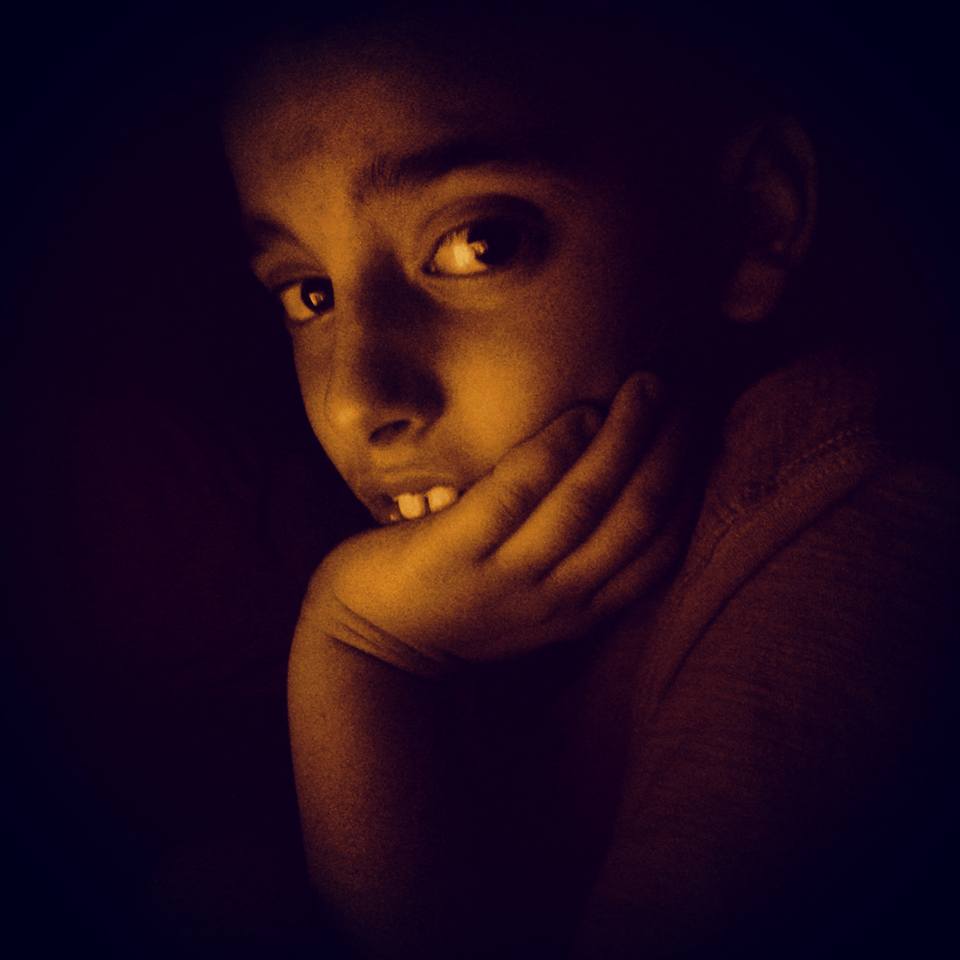
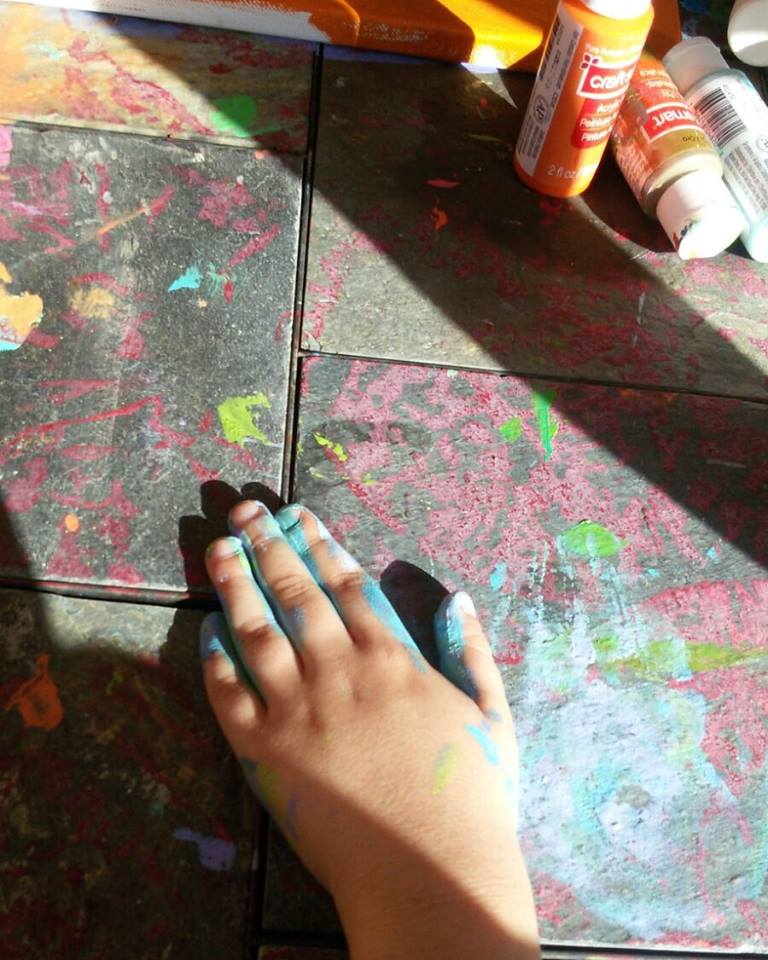
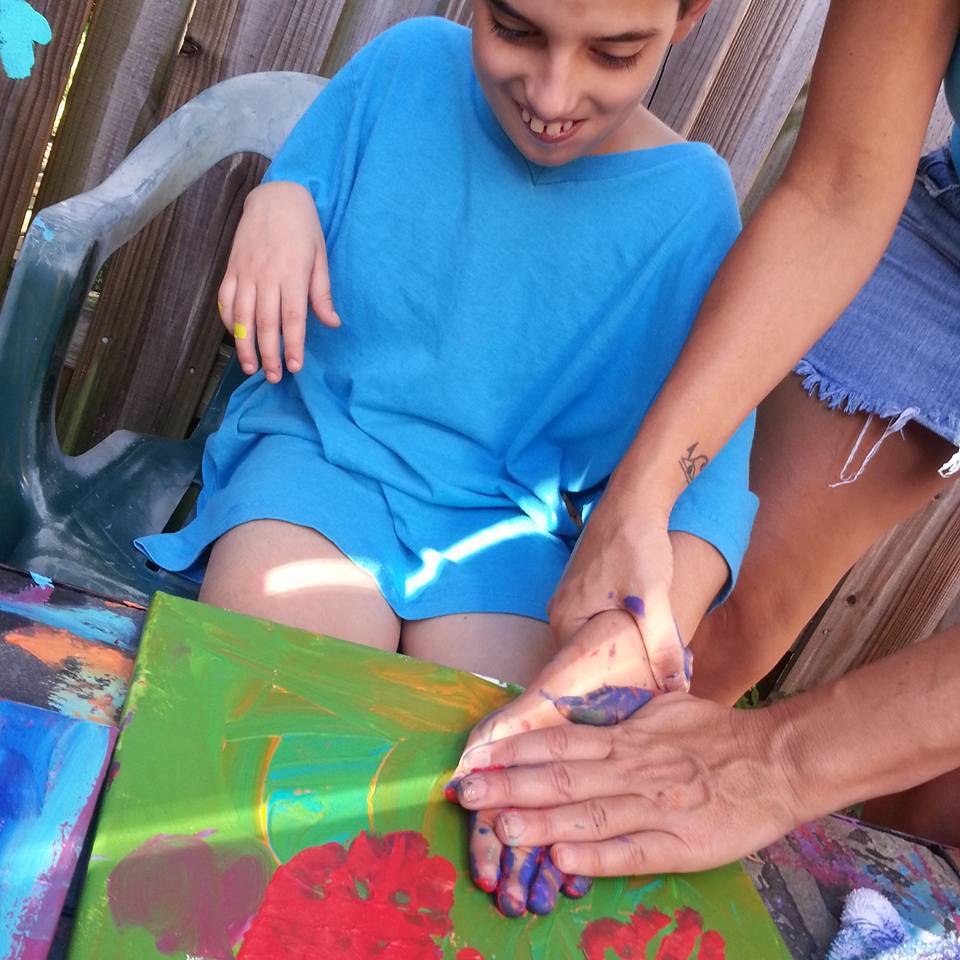

Sebastien
Most babies do very little when they’re first born, apart from eat and sleep. So, when Dominique Pettitt realised that her infant son Sebastien literally couldn’t fall asleep, she knew something was seriously wrong.
“He’d just lie in his cot, wide awake. Most babies fall asleep instinctively, but Sebastien simply couldn’t,” explains Dominique. “My other son, Leon, was nine months at the time and his behaviour was completely different.”
It wasn’t the only issue troubling Dominique, 42, and her husband Steven, 48, about Sebastien. Their son didn’t hold eye contact or engage when they communicated with him. “It was like he was completely disconnected from the world,” she says. “Even when I was breastfeeding Sebastien, he seemed to have no awareness that I was there.”
At three months, Dominque and Steven decided to take Sebastien to see a paediatrician. After various tests, he was diagnosed with Phelan-McDermid Syndrome (PMS). This is a genetic syndrome caused by a faulty gene, called SHANK3, which is crucial for learning, memory and brain development. Symptoms of PMS include limited or absent speech, low muscle tone, poor control of muscles and eating and sleeping problems. The condition has similarities with autism, in that those with PMS have difficulties communicating and behavioural issues.
Learning to live
Sebastien is now four and his condition affects every part of his life. He can do virtually nothing for himself – and everything he can do, like sleeping, eating, and walking, has been taught to him.
“It’s hard to believe that I had to sit with him every night for a year, holding him, swaddling him, and literally teaching him that when darkness falls, you have to go to sleep,” explains Dominque. “Similarly with walking, his PMS means that he has ultra-sensitive hands and feet. It’s taken him time and extensive physiotherapy to manage the sensation he feels when he stands up – and not to freak out. Thankfully, he’s a determined little thing and has defied all logic to be able to do it.”
Sebastien’s PMS means that he doesn’t talk, sign or read. However, he has managed to create his own form of communication and can demonstrate to his parents how he’s feeling. “He’s very sweet and has beautiful eye contact,” says Dominique. “If he wants something he’ll come up to me or Steven, lean on us and look up. We’ll then ask him a range of questions like, ‘Are you hungry?’ ‘Do you want to go outside?’ ‘Do you want to walk?’ and when we say the one he wants to hear, he’ll smile widely or give us a huge kiss – indicating what he wants. He’s a very demonstrative and loving child.”
Sebastien enjoys listening to music as it motivates, stimulates and calms him. Every Saturday a carer takes him to a music group which he really enjoys. He also enjoys going out for walks with his family and watching the world go by around him.
“We always encourage Sebastien to walk where he can, then we put him back in his pushchair,” says Dominque. “He loves being outdoors. Like many boys, he loves cars and enjoys nothing more than sitting watching them drive past. He beams widely and you can see how happy he is.”
Finding support
Sebastien’s condition has had a major impact on his family’s life. He needs virtual round-the-clock care, and the family left their home and business in France last year to move back to England in order to get him the support he needs.
“It’s been a massive life-change for us,” says Dominique. “We didn’t want to leave France but the care for Sebastien just isn’t available there. Here in England, where Steven and I were born, he goes to an amazing school for children with severe learning difficulties and his progress since he joined last year has been remarkable.”
One example is that the school’s caretaker Jack has taught Sebastien to high-five. “On his first day at school, Jack held up his hand for Sebastien to clap. I had to explain that it would never happen and that Sebastien couldn’t use his hands. But, amazingly within a month, Sebastien had grasped it. Now, every day when he goes in he gives Jack a high five. It’s small things like that which really mean something special for us.”
Phelan-McDermid Syndrome Foundation UK
As well as Sebastien’s schooling and respite care, the Pettitts have also received support from the Phelan McDermid Syndrome Foundation. The charity provides helps families affected by PMS, and conducts vital research into the condition. “The work the PMS Foundation do is amazing,” says Dominque. “The charity was a real lifeline for us when we found out about Sebastien’s condition. The family days are fabulous because you meet people in the same position and you can just relax.”
Dominique is uncertain what the future will hold. Some children with PMS lose the skills they’ve acquired when they hit puberty. Others can go on to reach new developmental milestones.
“One certainty is that Sebastien will never be able to live independently and that’s obviously a concern as Steven and I get older,” says Dominique. “We try to live day to day, that’s all we can do. We plan for the worst case scenario but we live with the joy that at least for now Sebastien is a happy, loving child who is enjoying life.”
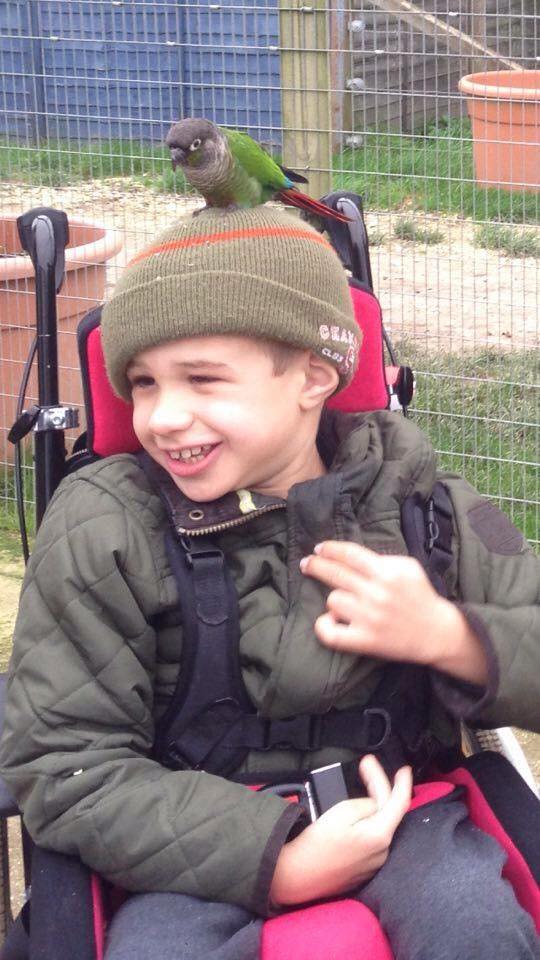
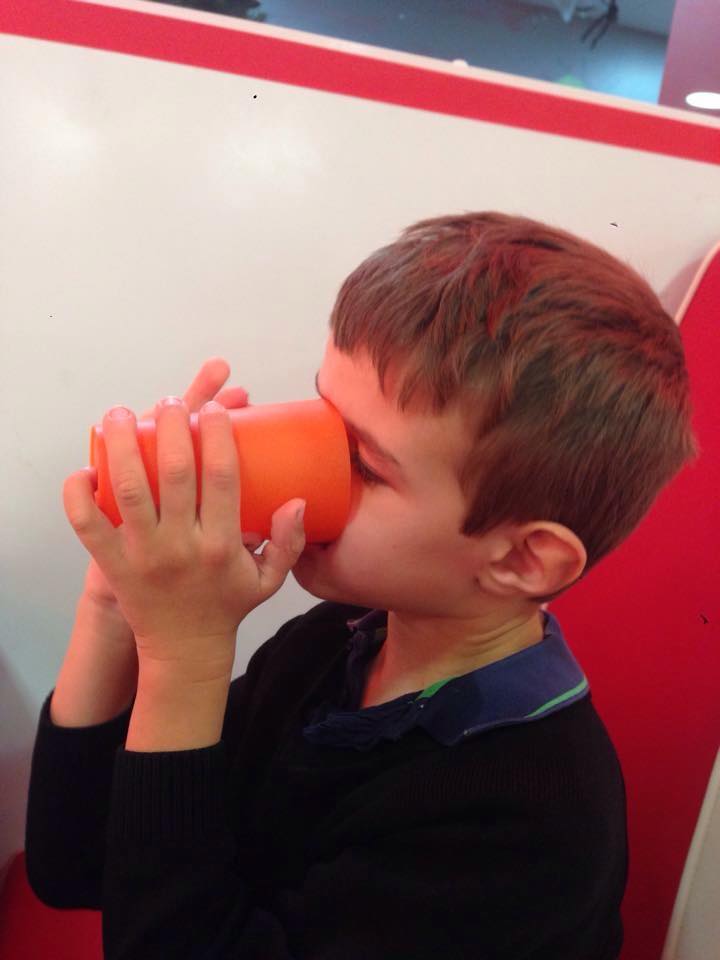
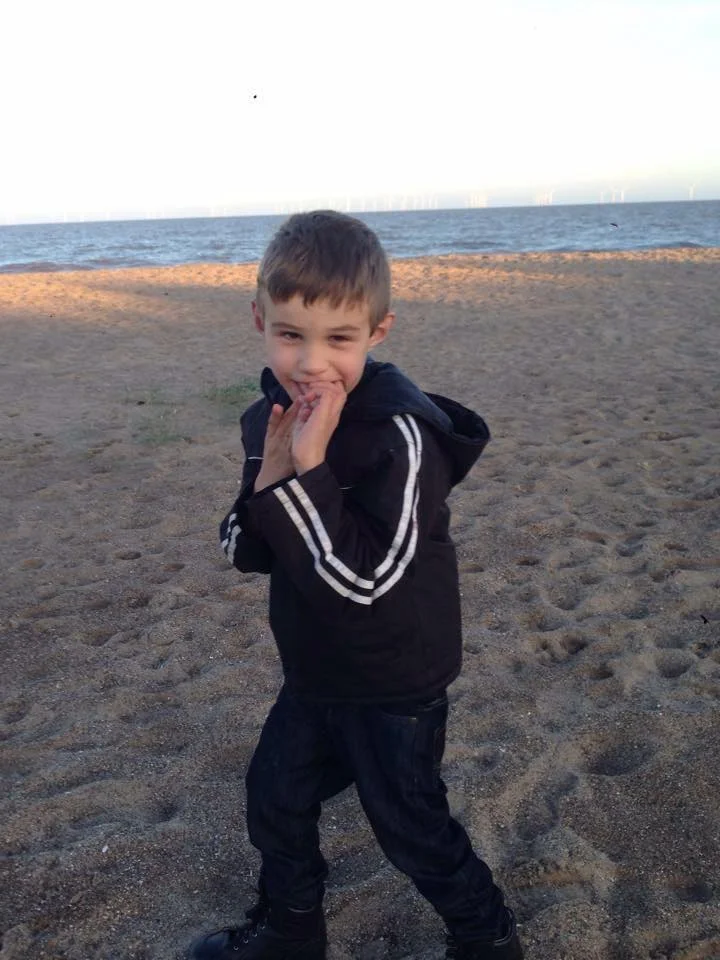
Emily
Emily, (4) our youngest, has Phelan-McDermid Syndrome (PMS). She was diagnosed at 12mths but before we got her diagnosis there were a number of signs, along with many other characteristics of PMS, that she had difficulties with her mobility.
Emily was having a lot of difficulties moving when she was very small and meeting the usual mile stones from birth were a challenge for her. At first this was obviously quite worrying for us as parents that our baby girl was unable to do the basic movements she required to develop. We didn’t want to compare Emily to her older sister, but we could definitely see she was having a lot of trouble.
When Emily was born her legs had to be put into plaster casts due to incorrect positioning in the womb so luckily for us she was having physiotherapy care from birth. Once they noticed Emily’s mobility difficulties they worked hard with her and gave her lots of different exercises to do at home. Progress was slow, but even the smallest achievement was massive for Emily and celebrated to the max.
Once we got Emily’s diagnosis of PMS at 12mths we learnt a lot about hypotonia, low muscle tone. This explained a lot about Emily’s mobility issues.
Having hypotonia makes every movement an effort for Emily. She gets tired very quickly and is still quite delayed in her mobility now at 4. Hypotonia affects her whole body. Even when Emily gets a cough it takes her longer to get rid of it and it usually turns to a chest infection because her muscles don’t work as well to move it on.
Now at 4 Emily has learnt to walk, very unbalanced, wobbly, gets tired quickly and has little sense of safety or spacial awareness, but she is mobile. She also recently learned to crawl up the stairs at home, we give her a lot of assistance and support but it’s such an achievement for her. She’s also started to lift her head up more and it’s so lovely to see her beautiful face and get some eye contact plus she can start to see where she’s going better.
The hypotonia in her arms seems worse than in her legs meaning feeding herself, clapping, playing with toys and communicating using Makaton signing are all very difficult for her. She is non verbal so it makes communication very challenging. Any form of communication is so important so she uses the iPad a lot, but her understanding is limited so even this is at a very basic level.
We are still and always will be working hard to progress all of Emily’s movements and improve her mobility. She has a snappy pushchair to use when we are out and about and she wears special orthopaedic boots to support her ankle, her flat feet and help her walk. Although she can move around the home, walking outside is a lot more difficult and has many safety issues. With a lot of practice Emily (3.5yrs) managed to climb the slide last summer. This took a great amount of effort, patience and support, but she got there, yay!!! We still stand behind her just in case but we’re so proud of this achievement.
She sees OT and PT regularly at school to help progress with different activities and exercises. With this intervention and work we do at home we’re hoping Emily will continue to make great progress.
Team Feddo x
Click here to learn more about what Emily's Mum is doing to raise awareness for PMSFUK!
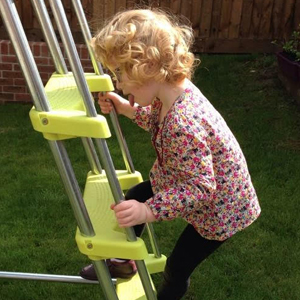
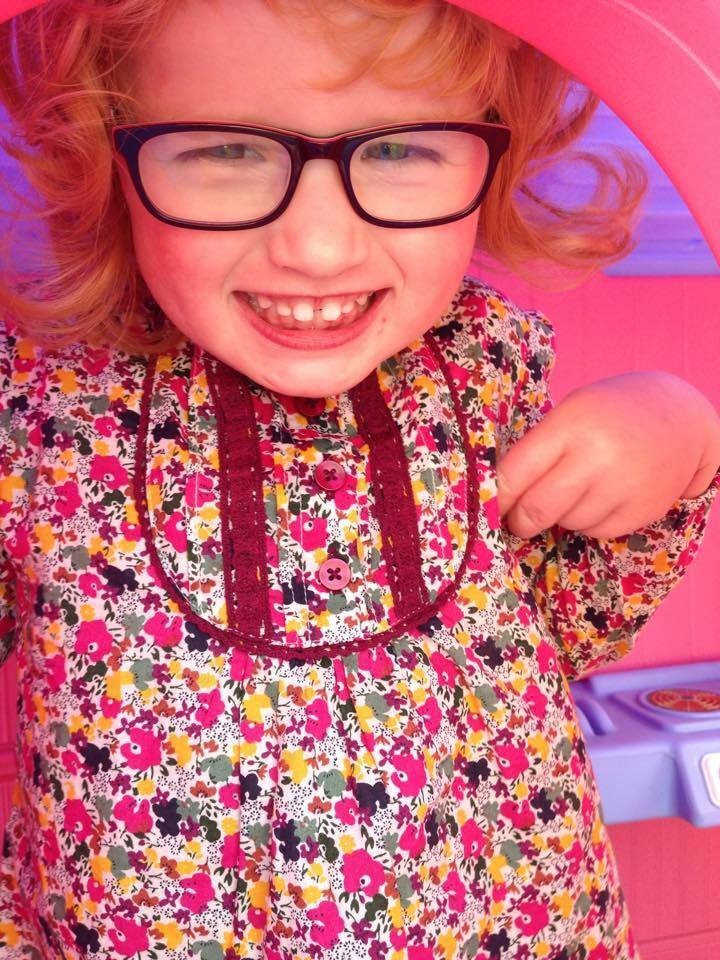
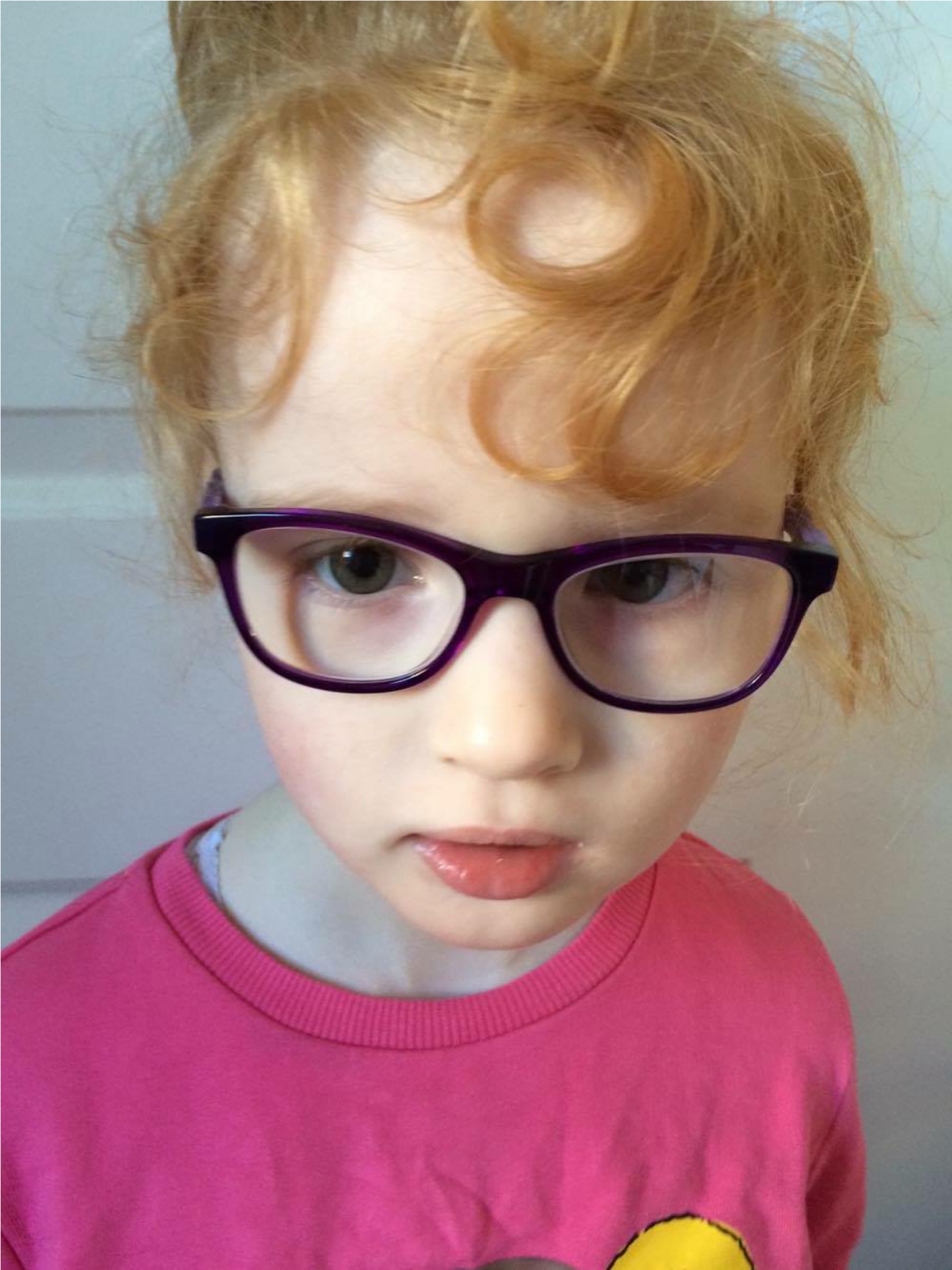
Olivia
Olivia is a 6 year old fun, loving and happy little girl residing in central New Jersey with her mom Taryn, dad Brian, 19 month old brother James and family dog Annie. Prior to birth, Olivia was diagnosed with Ring 22 Chromosome Disorder. Three years later, the size of her chromosome deletion was detected and Olivia was diagnosed with Phelan-McDermid Syndrome and most recently Autism. Quite a diagnosis, right? Well, despite the many challenges Olivia is faced with, she is a very hard working and determined little girl.
Probably one of the most difficult challenges in raising Olivia is the fact that she is completely non-verbal – no words, no sound approximations, no forms of sign language, just a range of sounds including lots of giggles. Funny thing is that Olivia had 5 words at 12 months of age, lost them 3 months later and they have yet to return. Because of this impairment, Olivia uses a picture system to communicate and is currently learning augmentative applications for use with her iPad. An electronic voice is far better than no voice at all!
In addition to her language impairment, Olivia has a degree of cognitive impairment, poor fine motor skills, weakened hand strength, decreased motor coordination, sensory processing disorder, decreased ability to regulate body temperature, consistent teeth grinding, a strong desire to lick metal and increased irritable behaviors.
Since age 3, Olivia attends a special services full-day school program for 11 months throughout the year. In addition to her education (which includes Occupational Therapy, Speech Therapy and Physical Therapy), she also receives private Occupational Therapy and ABA therapy. Through a collaborative approach, Olivia utilizes a wide variety of fun activities to help develop better body awareness, core strength, fine motor skills as well as communication development.
Olivia is a sensory seeker and enjoys a wide variety of physical activities including jumping on her trampoline, swinging and running around on the playground. Her most favorite pastimes include: therapeutic horseback riding, swimming, surfing, bike riding, watching videos (her favorite is The Fresh Beat Band), eating and playing with her little brother.
Through perseverance, love, patience and strength, Olivia has far exceeded the expectations that were presented to her parents on November 23, 2005, the day that has changed the Stack Family’s life forever.
With P-MS love, this is the story of Olivia as told by her mother Taryn c. August 2012.
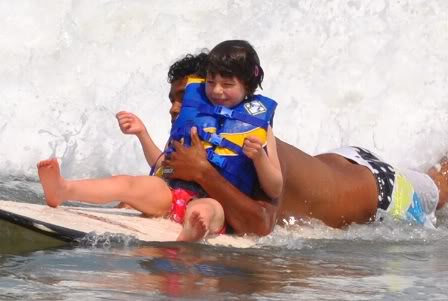
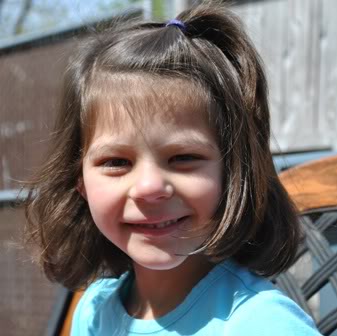
Jamie
Jamie is our beautiful, funny, smart, shy and witty 10 year old daughter. She brings sunshine to our family. She was diagnosed with Phelan-McDermind Syndrome (P-MS) at age 3. At that time, there were approximately 75 known cases of PM-S. We had questions that couldn't be answered and problems that couldn't be shared. It was a very trying time for our family. Each day was (and still is) a challenge, but it's getting better. Yes...I'm still waiting for her to walk down the stairs by herself, brush her own teeth or to hear an unprompted "love you Mom". BUT...I wouldn't change a thing about this life with Jamie. One of her older sisters (she has 3) once said to me "it wouldn't be our family if Jamie was normal" So very true. Normal or not...she completes our family.
Jamie is in the 5th grade. She's in a special needs classroom with 3 other children. She receives Physical, Occupational, and Speech Therapy. She has an aide mainly for safety purposes. Jamie truly loves going to school. To this day, the school system has not let her down. They know what she needs. They listen to me and her IEP meetings are always a success. I am thankful for that. Her vocabulary consists of about 35 words and about 5 signs. She recently started wearing AFO's to help with her walking. Her orthopedist is concerned about the possibility of "genu recurvatum" in both legs. One major health concern with Jamie is chronic constipation. She's followed by a GI doctor at Children's Hospital in Boston. Her pediatrician has concerns about her weight. She is 4' 6" tall and only weighs 55 pounds. She's very tall and lanky. A gust of wind could knock her down. Other than that she has had no major health issues. She did suffer from croup quite a bit as an infant/toddler but seems to have grown out of it within the past few years. All EEG's, MRI's, kidney ultrasounds, etc have come back normal.
Jamie is a loner when it comes to play time but by no means is she lonely. While it bothers me that she has never been to a sleepover, or gone to a friends birthday party, or giggled on the phone with a classmate, I know she has no interest in these things. She just doesn't have the mental ability to grasp the meanings of all things a 10 year old should understand. She may not have any "human" friends (besides me, her dad, and 3 sisters) but she is lovingly surrounded by a group of fake dinosaurs. She plays for hours with these plastic friends of hers (just babbling away at them). I may not be able to understand what she says to her favorite T-Rex but she sure has a plan for him! Her other favorite activity is going to the beach. I wish we lived in a warm climate year round to accommodate this for her. We make the most of it during the summer months. Jamie loves to just sit at the waters edge and watch people, throw small rocks into the water, or try to jump small waves. I truly believe the ocean is her happy place.
Having a child with special needs has taught me a lot. It has given me so much strength and yet left me humbled by the sheer joy in Jamie's eyes over the simplest things. If you stop to think about it for a minute...doesn't every child have a special need? My Jamie just has EXTRA special needs....
Written by Jamie's mom, Kelsey, c. 2012
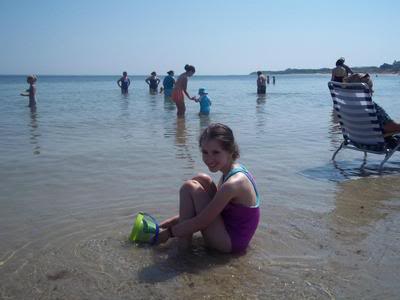
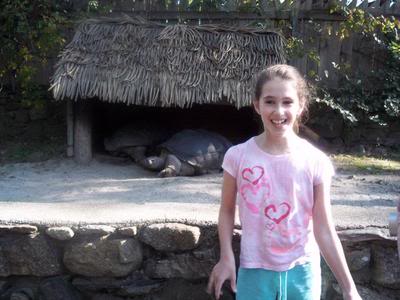
Charles
Post below originally posted on Autism Speaks blog 1/11/11.
Guest Blogger Geraldine Bliss is the Chair of the Research Support Committee for the Phelan-McDermid Syndrome Foundation.
Six years ago, my son, Charles, was diagnosed with Phelan-McDermid Syndrome (PMS), a rare genetic condition caused by damage to chromosome 22 (22q13). Charles has a chromosome break in the middle of the SHANK3 gene, which codes for the crucial post-synaptic protein, Shank3, mutations of which cause autism. Charles has a rather small deletion by PMS standards, and he was one of the first patients to be diagnosed with PMS through chromosomal microarray.
Once we learned the diagnosis, our family quickly connected with the Phelan-McDermid Syndrome Foundation (PMSF), where we met, both on-line and in person, other families facing the same challenges. Just as in the larger autism community, some individuals with PMS were “just like Charles,” while others were very different. The foundation members were quick to embrace us and make us feel like extended family. Through PMSF’s biennial conference, regional get-togethers, newsletters, family discussion group, and social networking, our 600+ families are able to stay connected and support each other.
PMSF has grown quickly, but our membership numbers reflect only the very tip of the PMS iceberg. In the U.S. alone, we estimate there are about 8,000 children with PMS. Many of these children have never been tested with a chromosomal microarray (the most common test for PMS), either because their doctors have not referred them or because the cost is not covered by their health plans.
Charles is now 12 years old. Just before his 9th birthday, he started having seizures. As his seizures spiraled out of control, and we began to exhaust one treatment option after another, I promised Charles to do whatever I could to help him get better. I became the chair of the PMSF’s Research Support Committee. Our family crisis, and my new role in the Foundation, occurred at a critical juncture in autism research. There has been growing scientific interest in SHANK3, a gene on chromosome 22 along with several other autism-related genes, which portend a new era of understanding and medical treatment.
While only about 1% of people with autism spectrum disorders (ASD) have SHANK3 mutations, Shank3 research has broad implications for many people with ASD. It plays an important and central role in synaptic structure, learning, and memory in autism. It interacts with many other proteins critical to neurological functioning, and some of these proteins are already implicated in other genetic forms of autism. A number of researchers have developed mouse knockout models that turn off different parts of the Shank3 protein. These models have led to behavioral, chemical and physiological assays to study the underlying molecular problems in ASD and to rapidly test candidate drugs for future clinical studies. Unlocking the mystery of Shank3 will open the door to understanding its partner proteins, providing a research path towards effective drug treatments for many ASDs.
While Shank3 research is very promising, laboratory science by itself will not lead to effective treatments. In January 2010, the PMSF’s Research Support Committee met to develop its first strategic plan for science. As a result, we prioritized several initiatives aimed at promoting all of the steps needed to ensure that research will lead to clinical gains. One of the most exciting initiatives is the Phelan-McDermid Syndrome International Registry. The Registry will collect and catalog information about the developmental, behavioral, and health profiles of individuals with PMS. The Registry will better characterize PMS, inform clinical care guidelines, and facilitate the discovery and development of therapeutics for PMS.
Our Foundation is also organizing the First International Phelan-McDermid Syndrome Symposium, which will be held on March 3 and 4, 2011. Our co-investigator is Joseph Buxbaum, Ph.D., Mt. Sinai School of Medicine. Our goal is to bring together our stakeholders to develop a plan to maximize scientific resources through coordinated efforts and to find the fastest pathways from bench to bedside. The discussions from the symposium will inform PMSF’s funding decisions as we begin to award grants and fellowships.
Charles’ seizures continue to be poorly controlled. He has social, behavioral, and communication challenges that affect every aspect of his life. After all these years, you might think I would have come to terms with all of this, but every day I feel grief. Sometimes I wonder how much more fear and heartache I can take, but Charles inevitably straightens me out! Charles has retained a joy that seems incompatible with the suffering he has endured. Every day his smile and great big dimples tell me he wants to live life and live it joyfully. How could I not pledge myself to accelerating translational PMS research? Now that I am involved, I truly appreciate the role that patient advocates can have in both supporting research and helping to steer its course.
We are now at the beginning of a very exciting time for research related to disorders like PMS and other genetic causes of autism. Advances in science, including the mapping of the human genome, new research tools, and new high-throughput drug discovery paradigms, are reshaping expectations about understanding and treating genetic conditions. Our group’s goal is not just finding medications to treat some of the manifestations of PMS, but having therapeutics that will target the underlying molecular causes. Just a few years ago, I had little reason to expect significant help from medical science, but promising new scientific work on Shank3 is inspiring hope that perhaps we will one day have a cure for PMS and related ASDs.
To learn more about the Phelan-McDermid Syndrome Foundation, please visit: http://www.pmsf.org
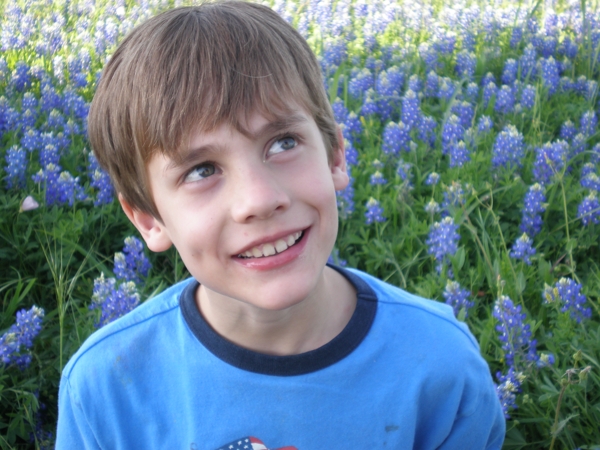
Jack
The following was eloquently and heart-wrenchingly written by Jack's mom, Jen, in response to another mom's blog post.
I just got done reading your blog. It took me a while as the tears were making it hard for me to read.
My son also has Phelan-McDermid Syndrome. His diagnosis was an extremely hard pill to swallow. I despise the fact that I don't know something is wrong with him until it is too late because of his high pain threshold. I am saddened by the fact that he is non-verbal and devastated by the fact that he has never called me mom or said I love you. What’s worse is the likelihood of that happening is pretty much non-existent. I worry constantly that he will get a hold of something he shouldn’t and eat it because of his need for oral stimulation and pica. I fear that the cyst in the back of his head will be unstable and cause more issues that I’m not prepared to deal with. I too am scared of what the future holds, the possibility of seizures and regression bares heavy on my heart. I too grieve for what could have been. I lie awake at night wondering what will happen to my son when my husband and I are gone. I am anxious when I bring him out in public. What will people say? How will people act if he acts differently? How will this affect my other children? I feel guilty that his brother and sister have spent more time in a hospital than most adults have because they accompany us while he visits with specialists. I feel guilty that my other children don't have the leisure of a typical life. Phelan-McDermid Syndrome has robbed my son and my family of so many things that it brings me to tears just thinking about it. You portrayed it so much more eloquently than I am able to do. And while I’m not “feeling” lucky that he/we have been dealt this hand in life, I do feel exactly the way that you do.
I too love his innocence, his genuine smile and belly laugh. I love that at the age of 13 he loves to have his mom hug and snuggle him real tight. I love the persistence and determination that he displays each and every day of his life despite all that is thrown at him. I love that this beautiful boy has brought so many well-meaning, loving, and generous people into our lives. I love that he has brought my family closer. I’m so appreciative that he has taught us to appreciate the small things in life. I adore the life lessons that he has taught us and his siblings: never give up, stand up for what you believe in, and take one day at a time.
Just like you, we are Phelan Lucky to have been given the gift of Jack. I cannot imagine my life without him. I am also Phelan Lucky to have found the foundation. They have provided us with information, support and most of all hope. It wasn’t until I became a bit more involved that I truly realized what the families in the foundation are doing to help my son, our sons, and all PMS kiddos. When I think about the time, the thought and the effort that parents just like myself (many of whom have children who are much more medically fragile than mine) are doing to help create a better life for our kids, I do feel lucky. I feel fortunate to have people searching for answers, looking for therapeutics and pushing scientists to collaborate and discover ways to make life easier for them. I am blessed to have a forum where I can share heartaches, joys and questions with those who truly "get it".
You see in no way do I feel fortunate that Jack has a diagnosis of PMS. I would never have chosen this life for him. However, I have learned that life doesn’t always give you what you want or dream of. This is our life, Jack’s life, and I want to make it as wonderful as I possibly can.
With that intent I created the PHELAN LUCKY campaign. Not to focus on all of the devastating challenges that PMS has brought us but instead to shine a light on what an incredible person Jack is and on the amazing people that are fighting for his well-being. THIS is why I am PHELAN LUCKY.
Please know I wish you all the best, like I said I feel you wrote the story of my life. I just wanted you to know why I created Phelan Lucky and to understand that this was my way of helping to provide funds for the research we so desperately need and to help raise awareness for the syndrome.
Much love,
Jennifer Randolph
Jack’s Mom
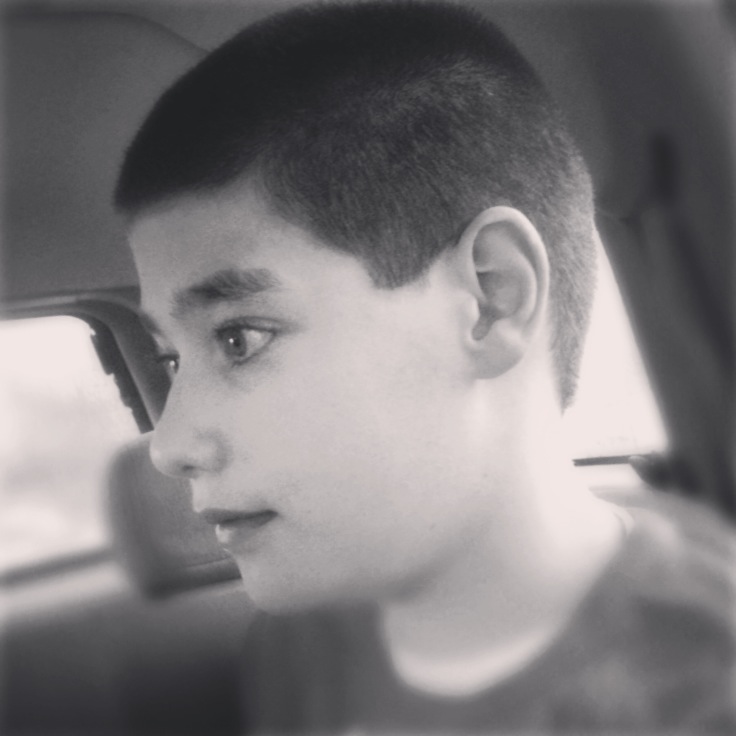

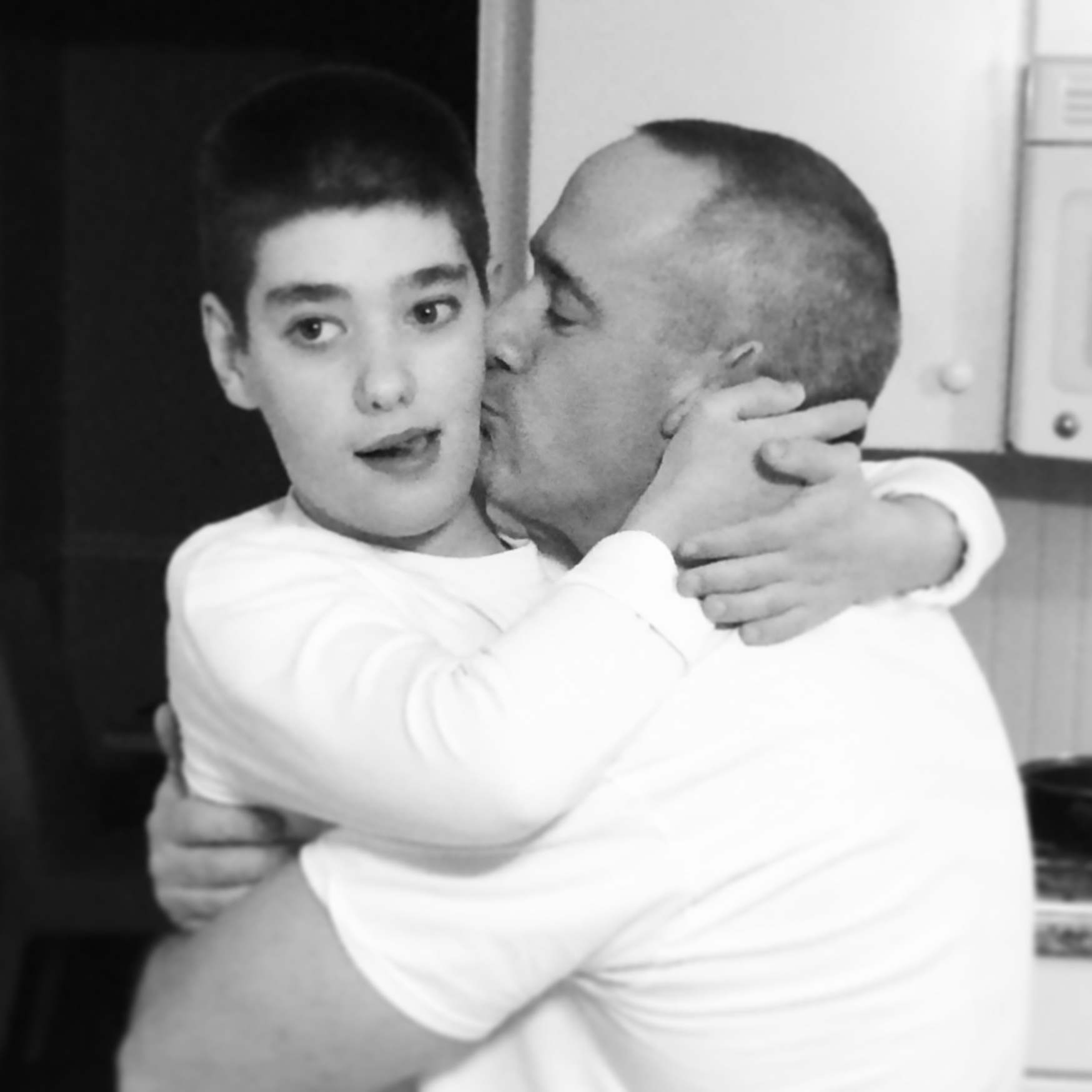
Dustin
When my son Dustin was diagnosed, there was only 104 known cases world wide. He was 13 years old. I have found myself wishing they had known about this sooner. When Dustin was born, he had respiratory problems, and jaundice but was otherwise a normal 8 lb. 12 Oz. bundle of fighting baby. The doctor commented about his toes in the NICU, but as it was 1993 and Phelan McDermid Syndrome was yet to be discovered, he saw no need for alarm. I watched my baby grow.. He reached several milestones early.... Rolling over, holding his own bottle... Things like that. The only thing was, he absolutely hated being held and would not hold his head up when you held him. I would bruise on my arms from the weight of him forcing his head back. He continued to grow and would do things such as reprogram the VCR with the remote. And he knew if we took out the batteries. He would look at it and toss it in the floor. ☺
The first 3 years went by quickly... He started showing signs of physical delay around 1. The soft spot on his head fuzed early, but we were told not to be concerned. Around 2 years of age, we started PT. He wasn't walking and would not put weight on his legs. He rolled and commando crawled everywhere. He said a few words and smiled a lot. When age 3 came, he changed almost over night. He stopped talking, stopped smiling and became aggressive. He was diagnosed as severely mentally impaired at that time.
Around age 5, he was diagnosed as autistic. We went to several specialists because he also started swallowing air... A condition later called aerophesia. This caused him distress and he would get pneumonia several times a year. Dustin still was not walking and he showed no signs of communication. After 2 muscle biopsies and a nerve conductor test, cerebral palsy was ruled out. The doctors were stumped. A major part of his cerebellum was just not there. It was mostly fluid. I kept working with him and pressed on, desperately trying to find answers. My baby had turned into a shell of what he once was.
Around 8, he started putting weight on his legs and would walk with assistance. One day, at age 10, he decided to get up and walk across the room on his own. I was elated!! At around age 13, his health started improving. The placement of a Gtube helped so much. We had a portal to release the air and that stopped the pneumonia and bowel obstructions. It was also at age 13, that a gastrointerologist asked to perform a test to see if Dustin had a chromosomal deletion. He had read about a condition called deletion 22 1.3. Within a week, we finally had our answer.
After 13 years, we finally had something to tell people... A reason for Dustin's delays. His spine started showing signs of scoliosis when he was around 12 or 13. His PT regimen was adjusted. He started showing signs of communicating through object association. Dustin would not chew any food so everything had to be pureed. He still doesn't chew at age 23. He wears diapers. His scoliosis has become severe... But Dustin "the fighter" is still walking.
I have been told so many times that he wouldn't survive to certain ages.... And he surpassed them all. Now, with the worsening of his scoliosis, we have once again been given a time limit on his life. It is getting hard for him to breathe at times and he appears to be in pain. We still get up and make him get around. I refuse to let him just lay in bed and quit. In spite of everything... I wouldn't change a moment with Dustin. He has enriched my life... Taught me patience, understanding and acceptance. I love him with everything that I have. He has a brother with no abnormalities and a sister with mild Asperger Syndrome.
I am telling you all this, because this is a story of hope... Perseverance and love. Never give up the fight for answers. You are your child's biggest advocate. Ask questions.... And by all means, tell your child's story. You could be the link to helping another parent find their answers. I know how hard the years of not knowing was.

Benjamin
Tomorrow, February 29, is World Rare Disease Day. This day is new to our family. We wanted to share our story about Benjamin to get the word out about his extremely rare condition. On Thursday, January 21st we received a phone call from Ben's geneticist. Benjamin underwent microarray genetic testing. His doctor thought this was a way to rule out anything serious, however the results were definitely not what we expected. Benjamin was diagnosed with Phelan McDermid Syndrome or 22q13 Deletion Syndrome, a rare genetic occurrence and is the result of a damaged or missing protein on the 22nd chromosome (Shank3).
Defects of the SHANK3 gene are highly associated with autism. Individuals with Phelan-McDermid Syndrome often have autism or autism spectrum disorders. Most children with PMS have moderate to severe delays and often do not develop functional language. Infants with medium to large chromosomal deletions may have very low muscle tone, poor motor control, and problems with eating and sleeping. Behavioral issues may stem from autism (e.g., repetitive behaviors), and poor communications skills.
Our family has been welcomed into the Phelan McDermid community with open arms. We continue to learn more information on a daily basis. Eli and I know that Benjamin is going to have a different life than we had imagined. We will encourage all of his triumphs and surround him with loving family and supportive friends. Next month he will be 2 years old. He's not yet walking or talking, but continues five therapies on a weekly basis to help him improve and grow developmentally.
There are only 1300 reported cases of Phelan McDermid syndrome in the world. Our family had a better chance of winning the Powerball than Ben having this rare syndrome. As a parent, I ask that when you see a child, no matter the age, that you don't ask questions like "does he walk?" "How old is he?" "Does he talk?" As Ben's mom these questions hurt. Remember to be accepting of all human beings. All we want is for Ben to be treated equally and loved. ❤ #phelanmcdermidsyndrome #rarediseaseday #bigben

E
Post below can be found on E's mom's blog. Special thanks for her for permission to repost here.
"Oh my! Look at those long eyelashes!" When anyone first sees E, they always, always comment on her long, beautiful eyelashes. I've always taken a silly pride in them, seeing them as markers of her health.
However, on the day we received her diagnosis of Phelan-McDermid Syndrome, we were handed a list of probable symptoms; "long eyelashes" were listed. How in the world can long eyelashes be a symptom? How can something so beautiful be an indicator of such a difficult syndrome?
So, on a daily basis I am faced with a choice (pun intended). When I look into E's eyes, I can either see beauty... or a syndrome. I can notice how the lashes perfectly frame her crinkled eyes as she smiles and giggle when there are specs of food in them... Or I can notice Phelan and McDermid. Seeing Phelan-McDermid brings to mind all that may await us: aggressive behavior, seizures, no verbal communication, incontinence... the ugly truths of what the syndrome brings. Or. Or. Or. I have a choice to focus on the beauty. I MUST choose to focus on the beauty.
So, when I set about to memorize her sweet face I will spend extra time on her eyes. On their mischievous glimmer, the way they widen in surprise during peek-a-boo and the way they flutter closed as she finds comfort in my arms in the middle of the night... and I will especially memorize each beautiful, purposeful lash.
May you choose to see beauty today, friend.

Chase
The post below was beautifully and eloquently written by Chase's Mom, Annie Johnson Kuehl, and shared with her permission, as are all of the posts here.
Finally ready...Chase’s Diagnosis:
So many of you have been reading about our journey with Chase this past year. It’s been bumpy. Along the way we have always known that he is extremely special. Mind blowingly special. Our most recent trip to the hospital was due to a 45 minute seizure on 1/6/2012. There were many tests that happened in the days following, all came back normal except two. We knew his EEG and his MRI were abnormal. So we were getting used to the idea that there was more to his delays, seizures and medical issues than we thought. We were at one of many follow up appointments last week when we found out the news. We were meeting with a genetic counselor and a dysmorphologist. They pointed out some abnormal features on Chase that would probably go unnoticed to most people but that clearly indicated to them that there was something genetic going on. While we were in their office trying to solve the mystery together, the lab called with test results on his dna. There was a significant deletion on his 22nd chromosome. This knocked the wind out of me. Especially as I saw how interested and intrigued the geneticists were. The deletion pointed to Phelan-McDermid Syndrome. A very rare genetic disorder. With somewhere between 400-600 diagnosed cases in the world. But we do have a diagnosis. Some people never get one.
As anyone can imagine... we were shocked. And we’ve gone through every emotion in the past week. This will change our lives. We will need to learn how to provide for Chase in a way we are completely unfamiliar with. We will need to find additional resources to help us do so. We will need to learn everything we can about this rare disorder and teach doctors, therapists, family and friends all about it.
It also will change our lives in a way I didn’t think about at first. This was meant to happen. To us and to Chase. We will learn to love and communicate in different ways. To set goals but to also not set limits. To tolerate and teach. And to celebrate every moment we can. We ultimately have a choice on how to feel at any given moment. I know that hard times may lay ahead but so do good times. Just like in everyone else’s world. We always have a choice to be positive and happy. I’m trying to follow that and I’m learning hour by hour.
We are always in need of support, advice, prayers and friendship. If there is any information or kind words that you think will benefit us in any way, please do not hesitate to pass it on.
Ultimately, we will be the very best family we can to Chase. He’s in good hands but it will take more than us to give him the best life he can have. Thank you to all our friends and family for being with us through it all. We can feel the love.
Lastly, I am attaching some links in regards to Phelan McDermid Syndrome. Awareness is essential. Ask me any questions that you may have. I will not filter information about this disorder. This is a learning experience for everyone. And stay tuned….there will be many updates along the way!
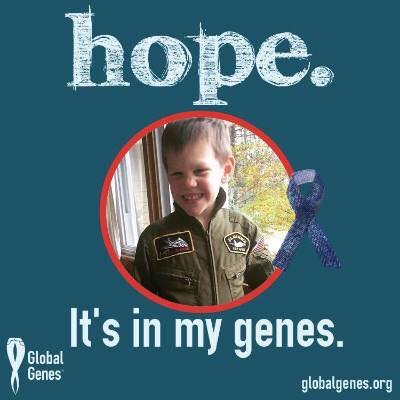
Jonathon
Thank you to Vicki Benton, Jonathon's mommy, for bravely sharing her post below. (written c. January 2003)
I always knew that my life would truly begin and end the day I would give birth to my first child. My life as a carefree young woman would end, but it didn't scare me because my life as a mother would begin. I always wanted kids and knew the kind of mother I wanted to be, I had fantastic teachers with my own parents.
After a long, hard labor he came into the world tiny and alien-looking, a cute alien who only weighed 4 lbs. But it was okay, he was a baby, I had this. It was love at first sight but the old adage is wrong, love is not blind. I knew something was "off". No one would listen.
For over three years I told any doctor who would see us that something was wrong, they wouldn't listen until one day, a day I'll never forget. Someone finally listened, told me I wasn't crazy and ordered "one more test", but she wouldn't tell me what she was testing for. For three long months I waited for results but nothing could prepare me for the call that came. "I need to see you, immediately", no small feat since it took two hours to get to her office. Once I got there, she said "he has Phelan-McDermid Syndrome and it is rare".
She then explained to me what it is and how much they didn't know about it and that she couldn't tell me what to expect for the life of my child. I listened, asked questions, and maintained my composure through the hour she had set aside just for me. I think I was in shock, to tell you the truth. My son and I walked to the car, I buckled him in all snug and he smiled at me. At that moment, I broke. I cried and I screamed and I truly believe that part of me died. I cried hysterically the entire way home, not very safe in hindsight.
I didn't talk to anyone for days. Then I woke one morning and I WAS FURIOUS. Nothing was fair, no one understood, but I vowed that I would make them understand. Here was my little boy, the love of my life, my reason for living, and he needed me. I would be everything to him, for him, and if people didn't like it, tough. And for the last 13 years, since his diagnosis, that's exactly what I've done.
The part of me that died has never been revived, but other parts of me have surged with a life force that only having a special needs child can do. I found a strength I never knew was possible, a version of unconditional love that is only felt by others like me, a sense of fear that is so intense that it keeps me awake some nights, and a deep, deep grief for all that will never be for this sweet angel of mine. And although I would give my life to make it better for him, I also wouldn't change a hair on his sweet, innocent head.
My biggest fear of all, though, is that he doesn't know how incredibly much I love him. My biggest wish is that he does.
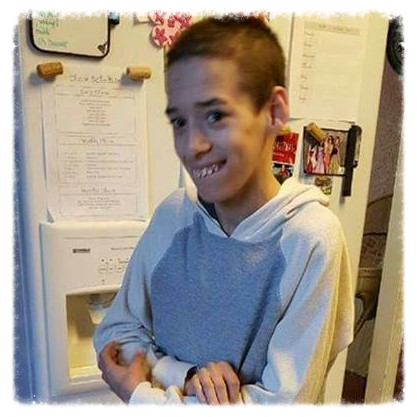
Darus
Email below was sent to our friends and family. I fully realize that it's a lot of information - but this is the condensed version of what I went through the morning the doctor informed us of our son's syndrome.
September 30, 2014
Dear Friends & Family,
Darus has been diagnosed with Phelan McDermid Syndrome (22q13). Jonas and I met with our UCLA geneticist, Dr. Barbara Crandall, this morning and learned the following:
Darus’ case is rare and different than the majority cases of PMS because of a change/mutation (not deletion) in the base of the SHANK3 gene on the 22nd chromosome. It is heterozygous. It is de novo – Jonas nor I are carriers. The geneticist believes that this happened in either the egg or the sperm – preconception. This would not have been detected w/ an amnio nor a cvs test because there was no chromosomal change. The chromosome microarray that was performed in March 2013 did not pick this up for that same reason. We learned of this variant mutation via WES (whole exome sequencing) trio.
“The c.4065_4066delTG variant represents a deletion of two nucleotides resulting in a frame-shift and premature termination of the SHANK3 gene. This variant has not been previously observed in the general population. Phelan-McDermid syndrome is typically associated with terminal deletions of 22q13.3 encompassing the SHANK3 gene.”
Dr. Crandall seemed eager to point out that Darus does not present with many of the characteristics that typically accompany PMS. She, however, could not confirm our hope that perhaps his case is/will be more mild than a more typical PMS case.
The SHANK3 gene has gotten a lot of attention recently, as scientists believe it could be connected to autism. Given all of the autism research currently underway, this is encouraging to me.
There is an exploratory clinical trial that involves using intranasal insulin that has been proven to help typical PMS kids (those w/ the deletion not mutation). There is a child right now, that has the same dx as Darus (mutation not deletion), that is going to start this trial. We’ve asked to be connected to his/her parents. I’m hopeful they will be open to speaking with us about their experience(s).
I’ve registered Darus w/ the Phelan McDermid Syndrome Foundation. I’ve also connected with a few groups online that I hope will be able to guide us down this new path. Last, but not least, there is a conference in Washington DC in November that is going to address the SHANK3 gene, and I hope to attend.
Overall, we're doing okay. It's a lot to take in/absorb/process, but it's nice to finally have answers and a better understanding of our sweet boy.
If you have any questions/advice/words of wisdom, please don't hesitate to send them my way. This has been and will continue to be a learning curve for us.
Thank you all very much for your support,
With love & gratitude,
Abby
